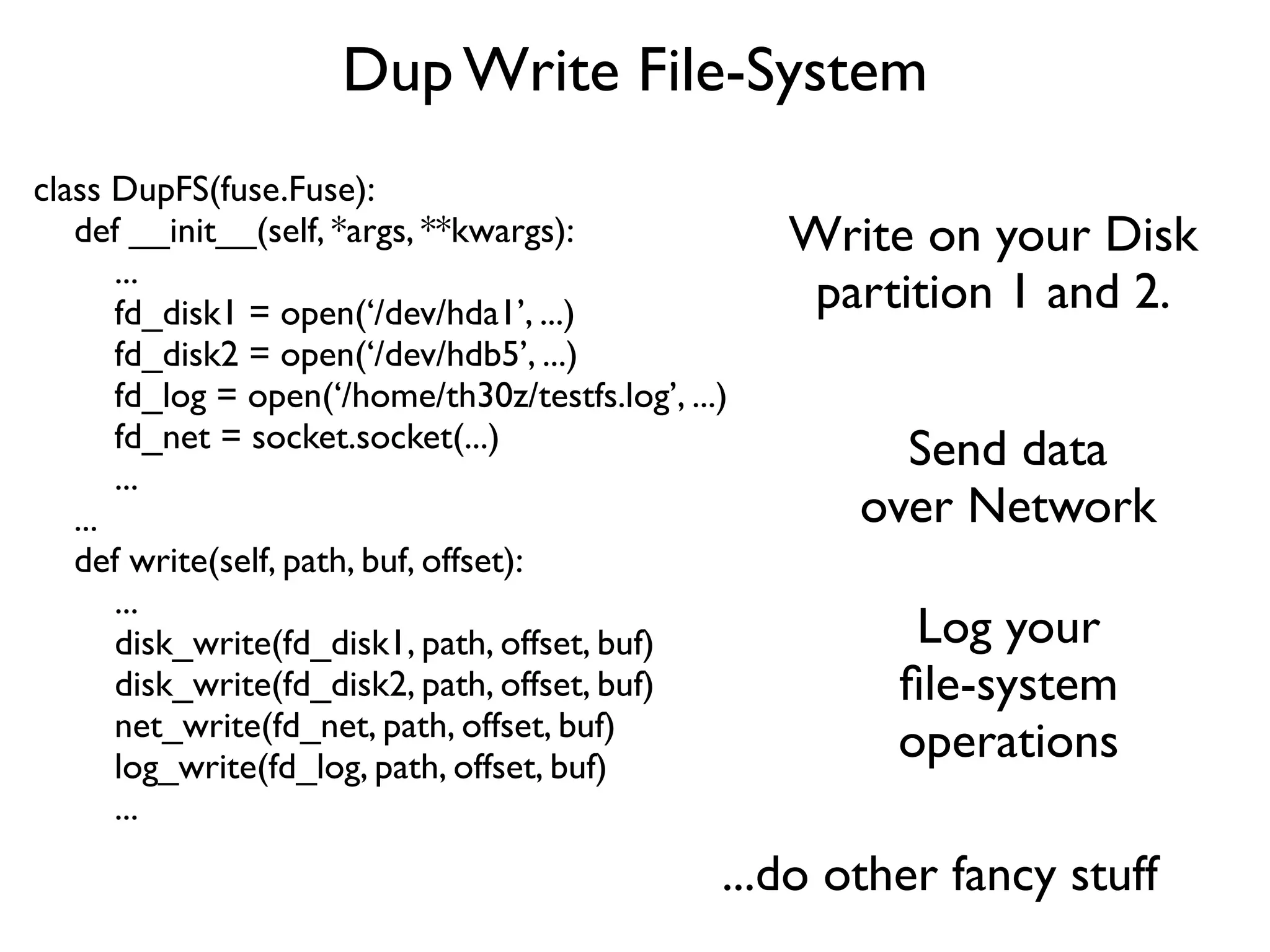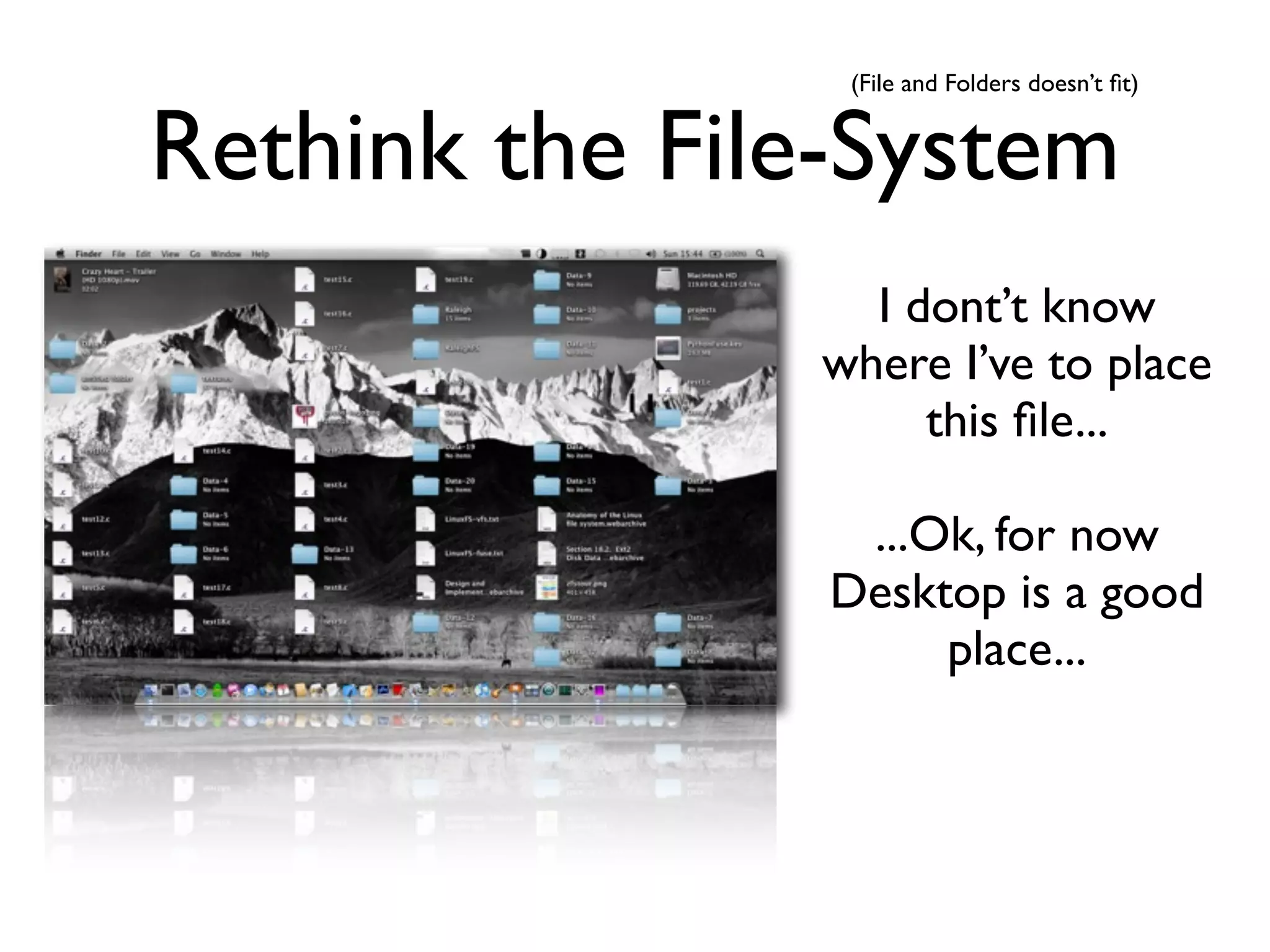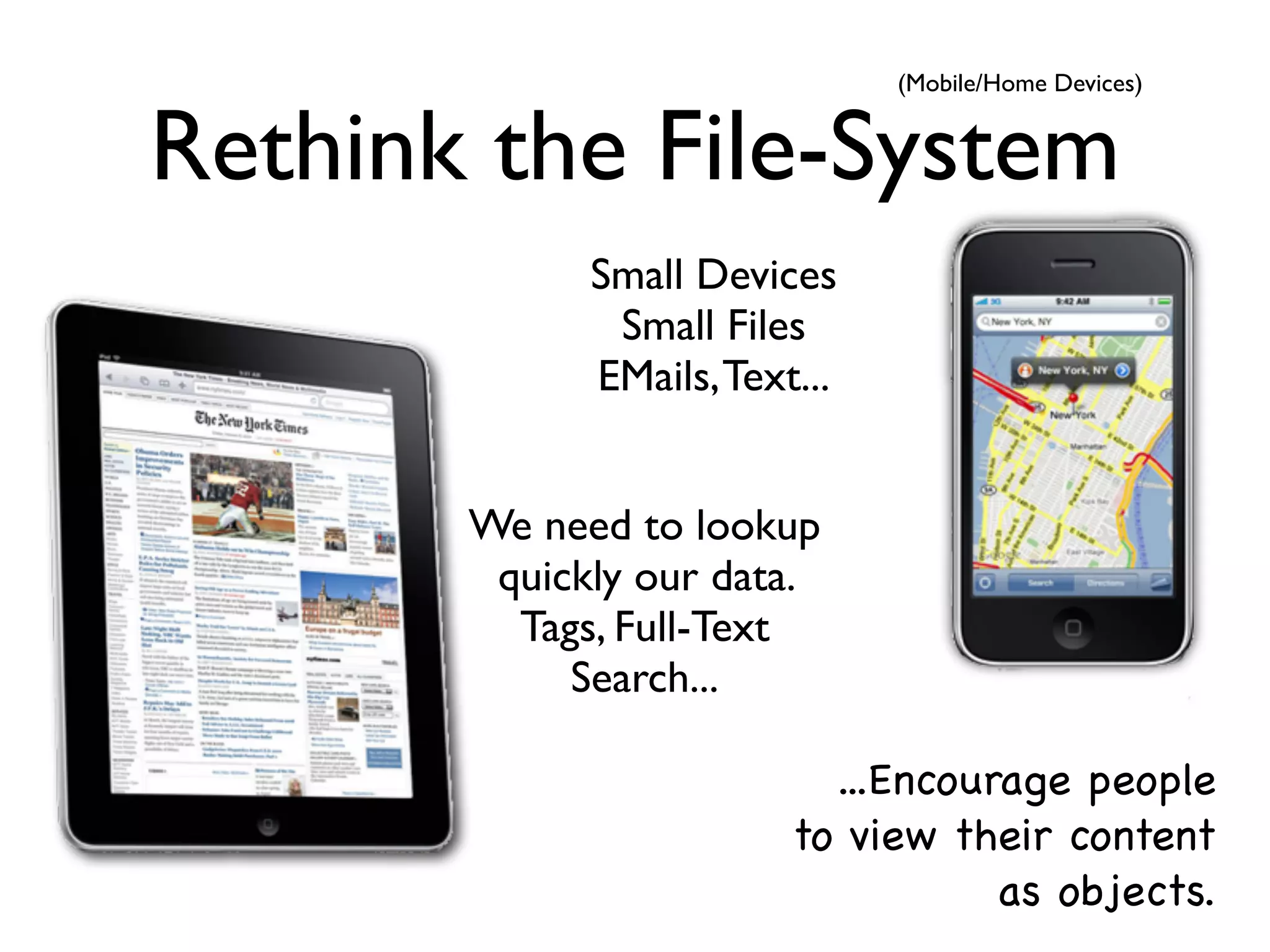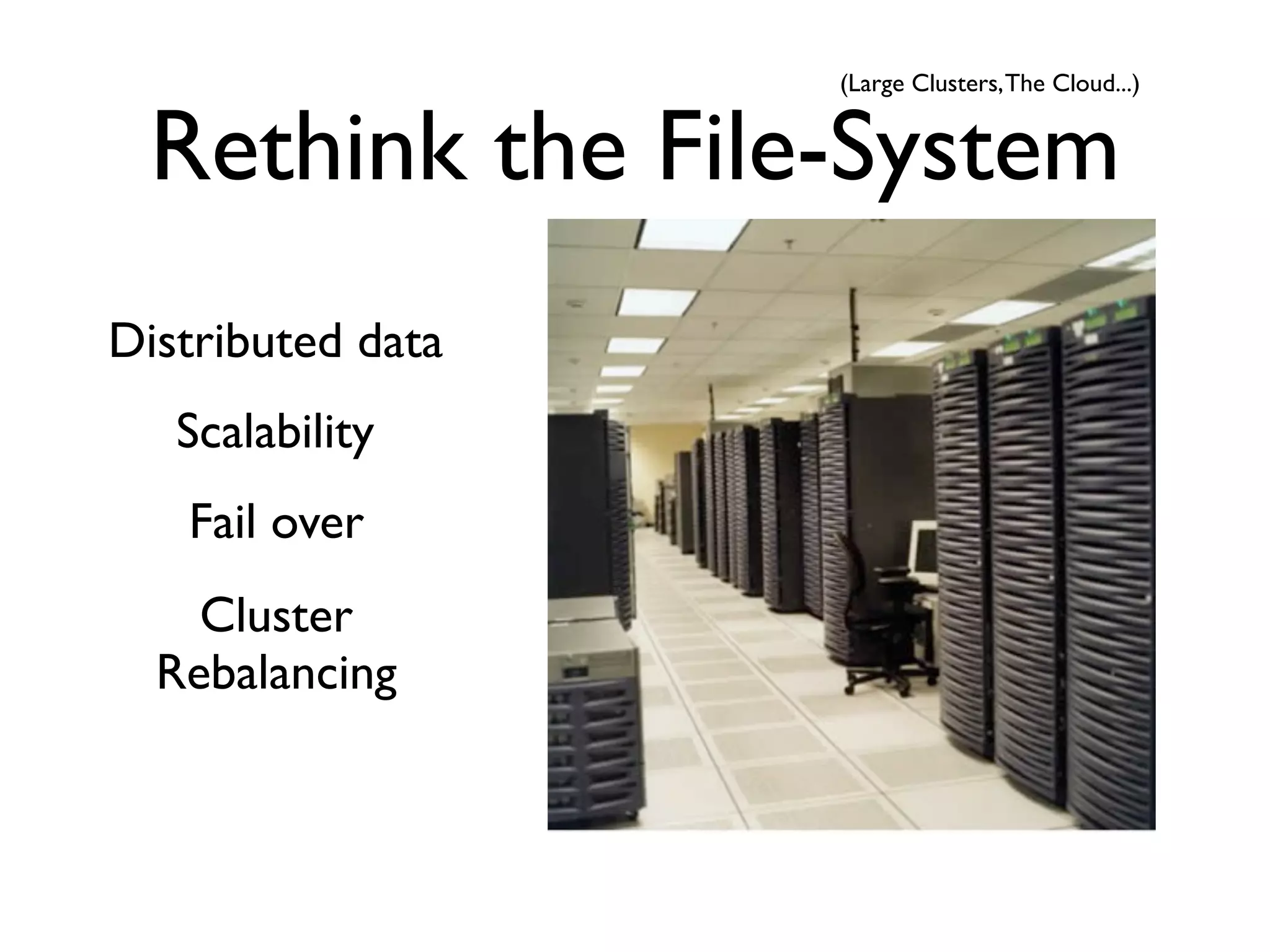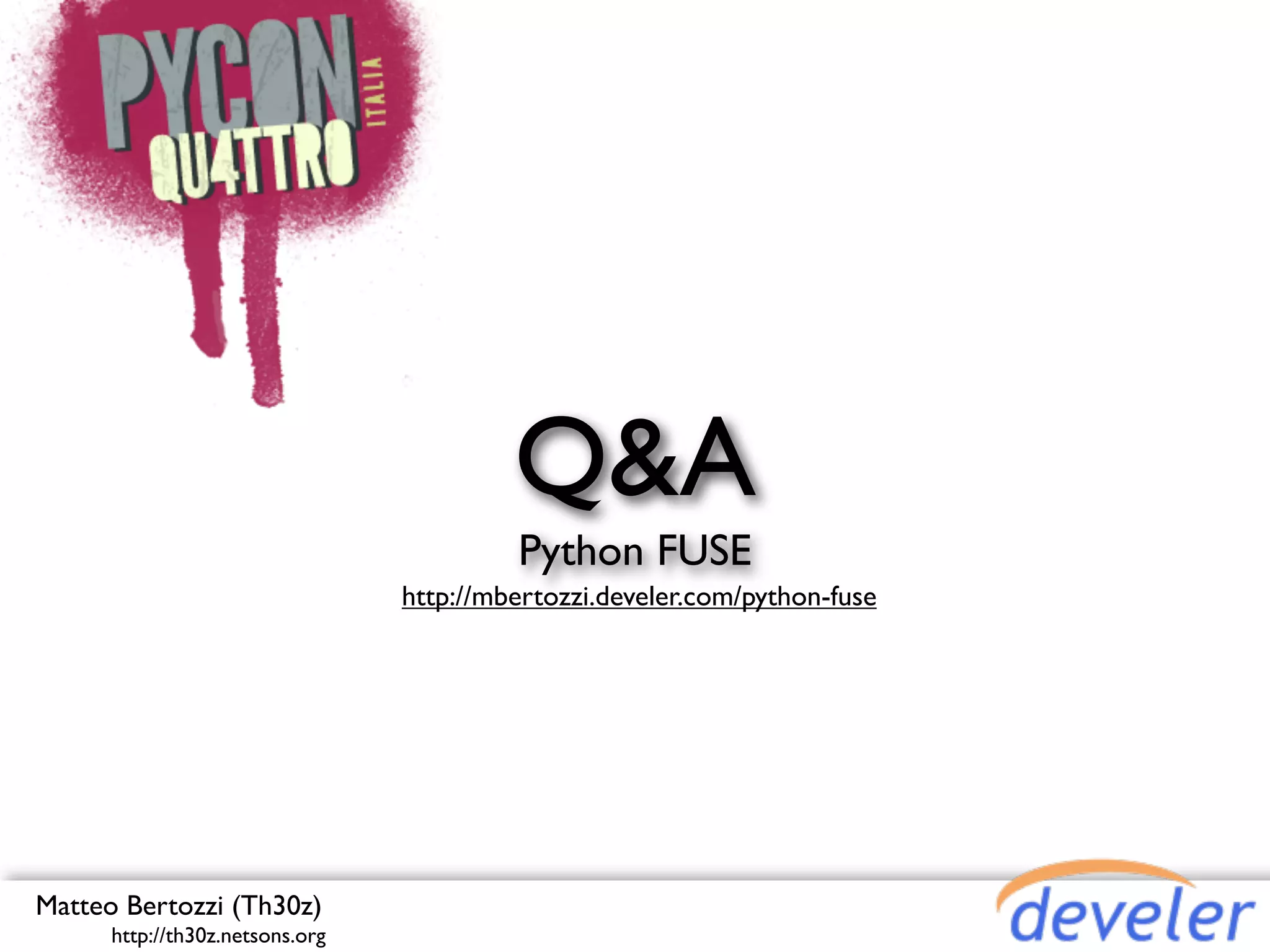The document discusses Python FUSE (Filesystem in Userspace) which allows users to create their own filesystems in userspace without modifying the kernel. It provides an overview of filesystem concepts, a brief history of filesystem development, and introduces FUSE as a way to develop filesystems using Python and other languages. Code examples are provided demonstrating how to create a basic hash table based filesystem in Python using the FUSE API.
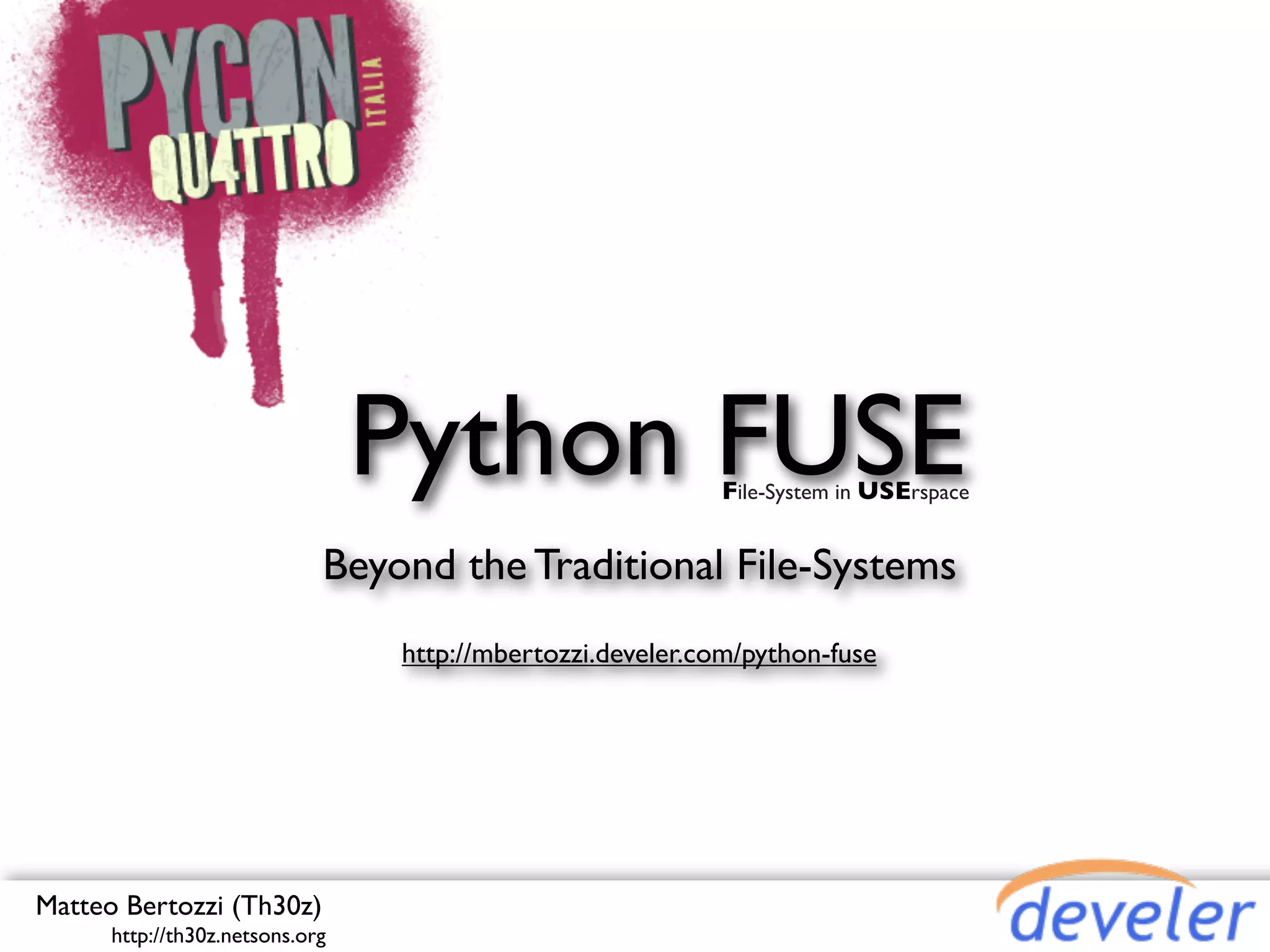
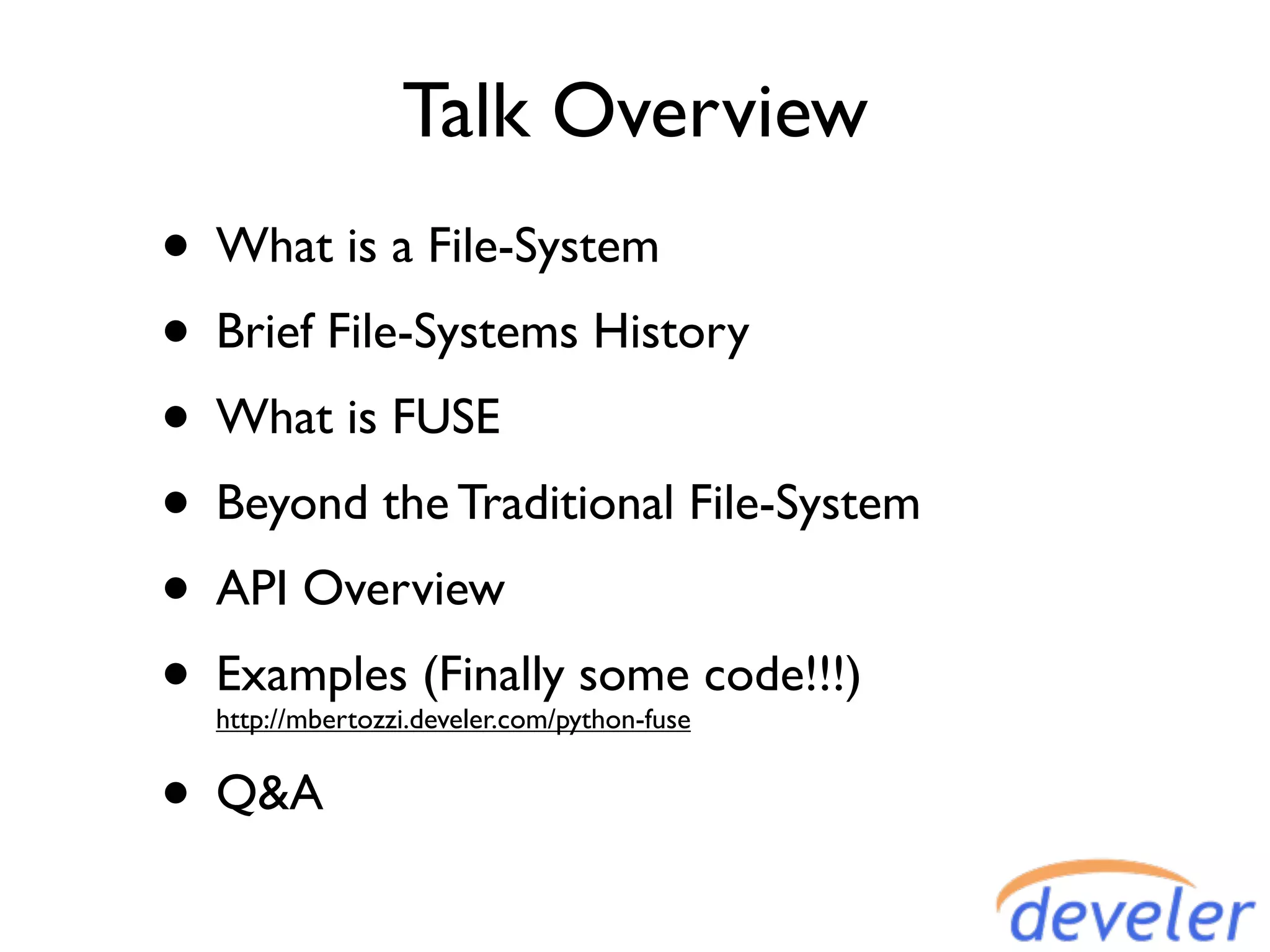
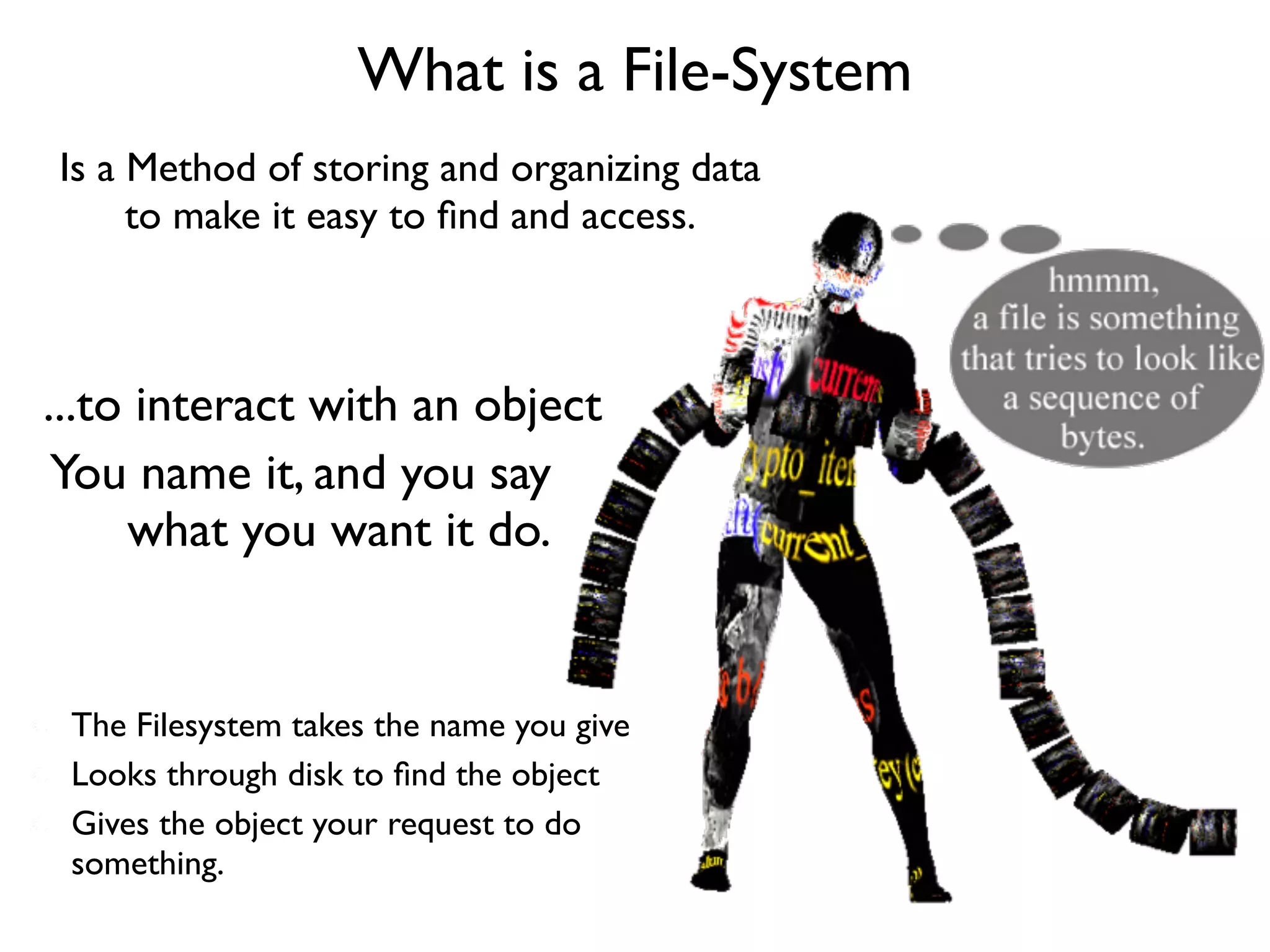
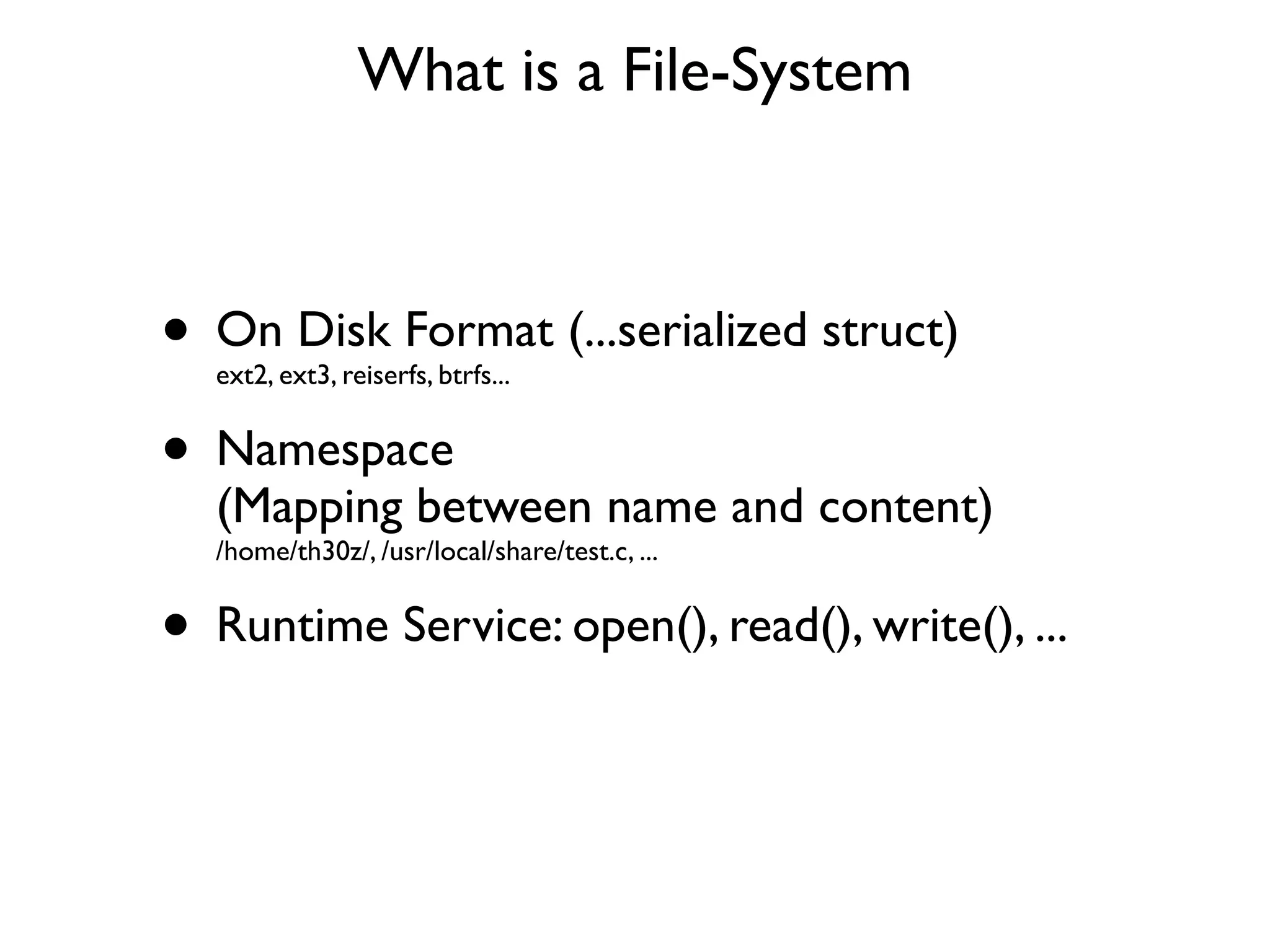
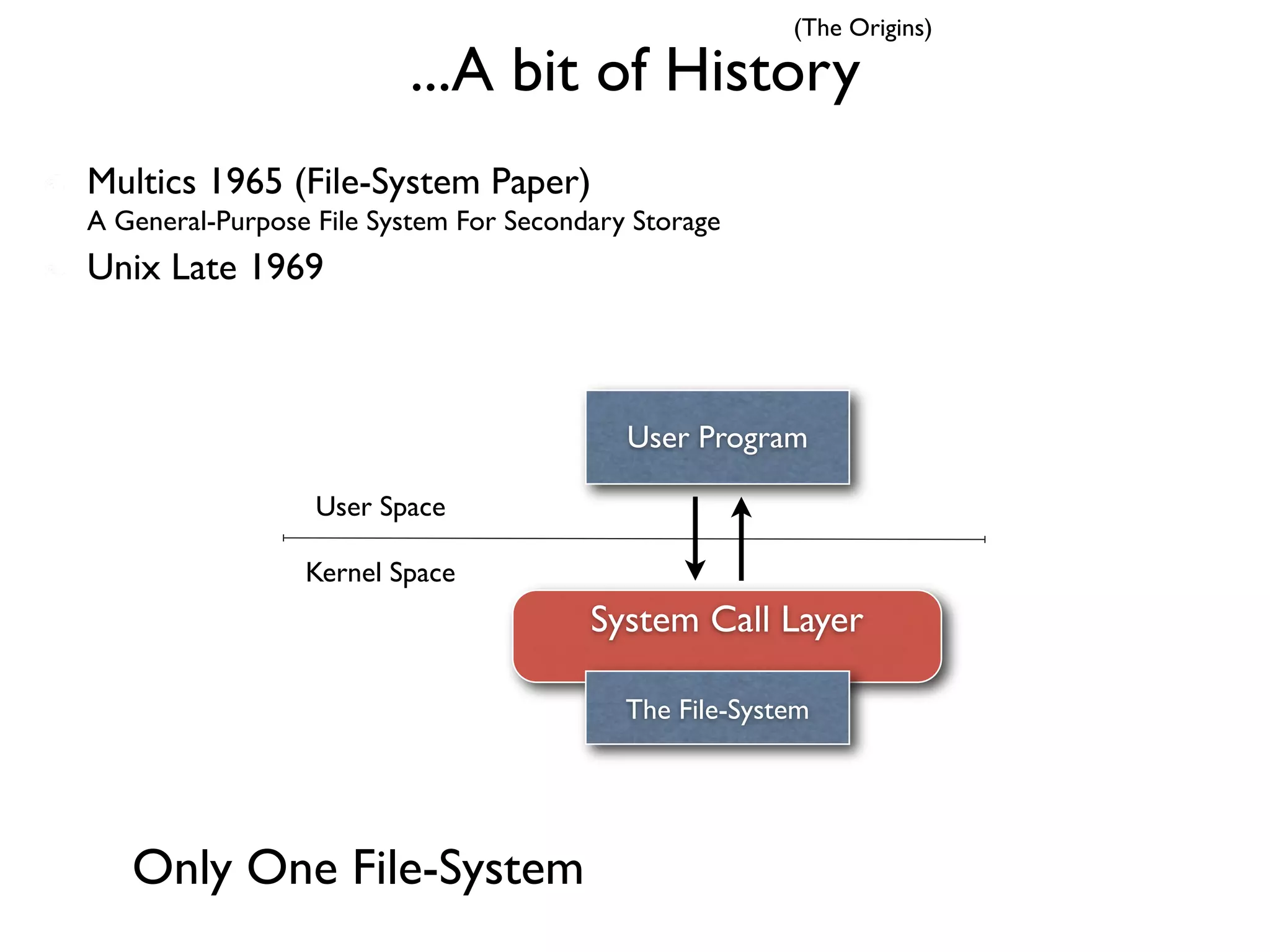
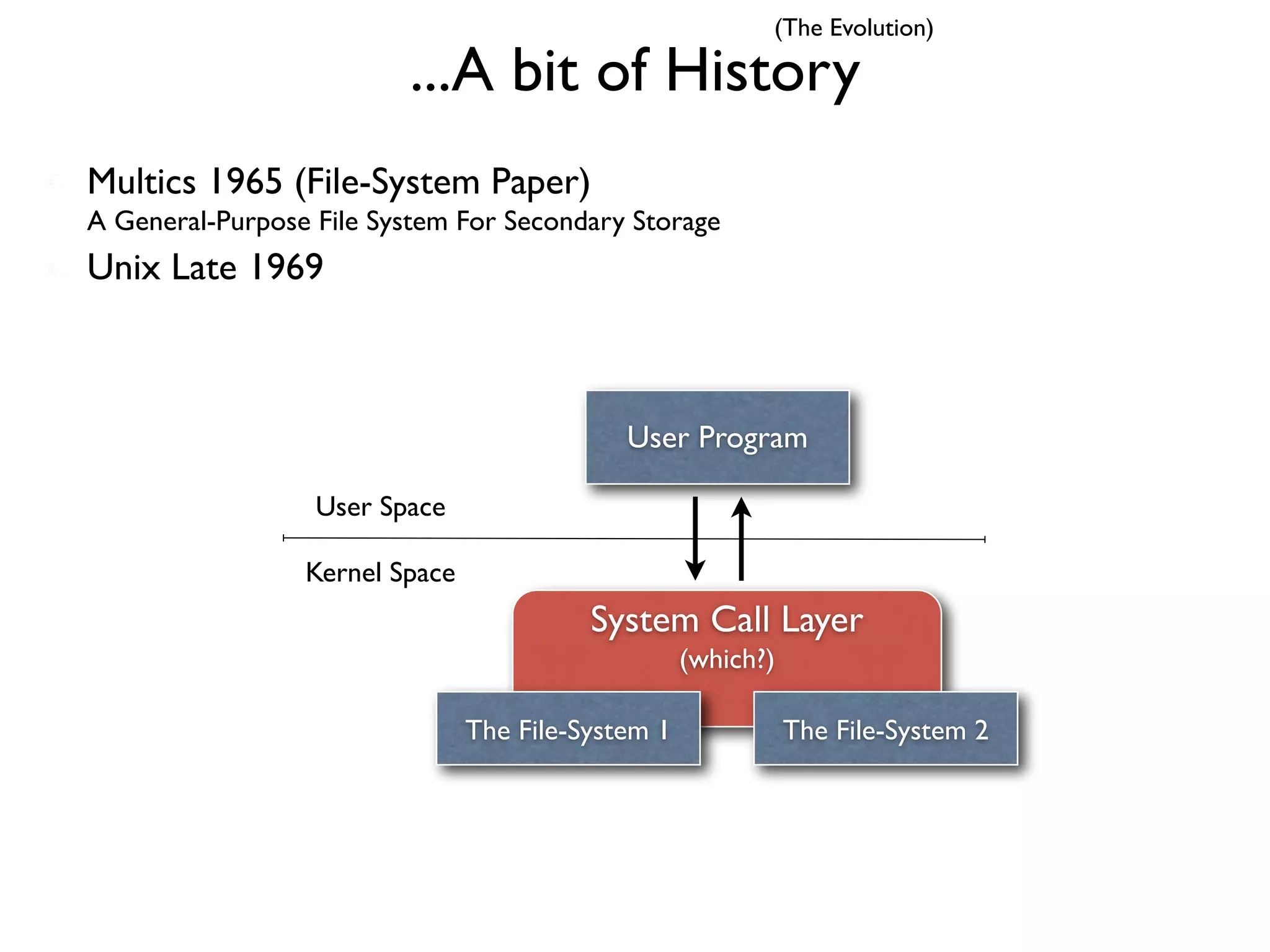
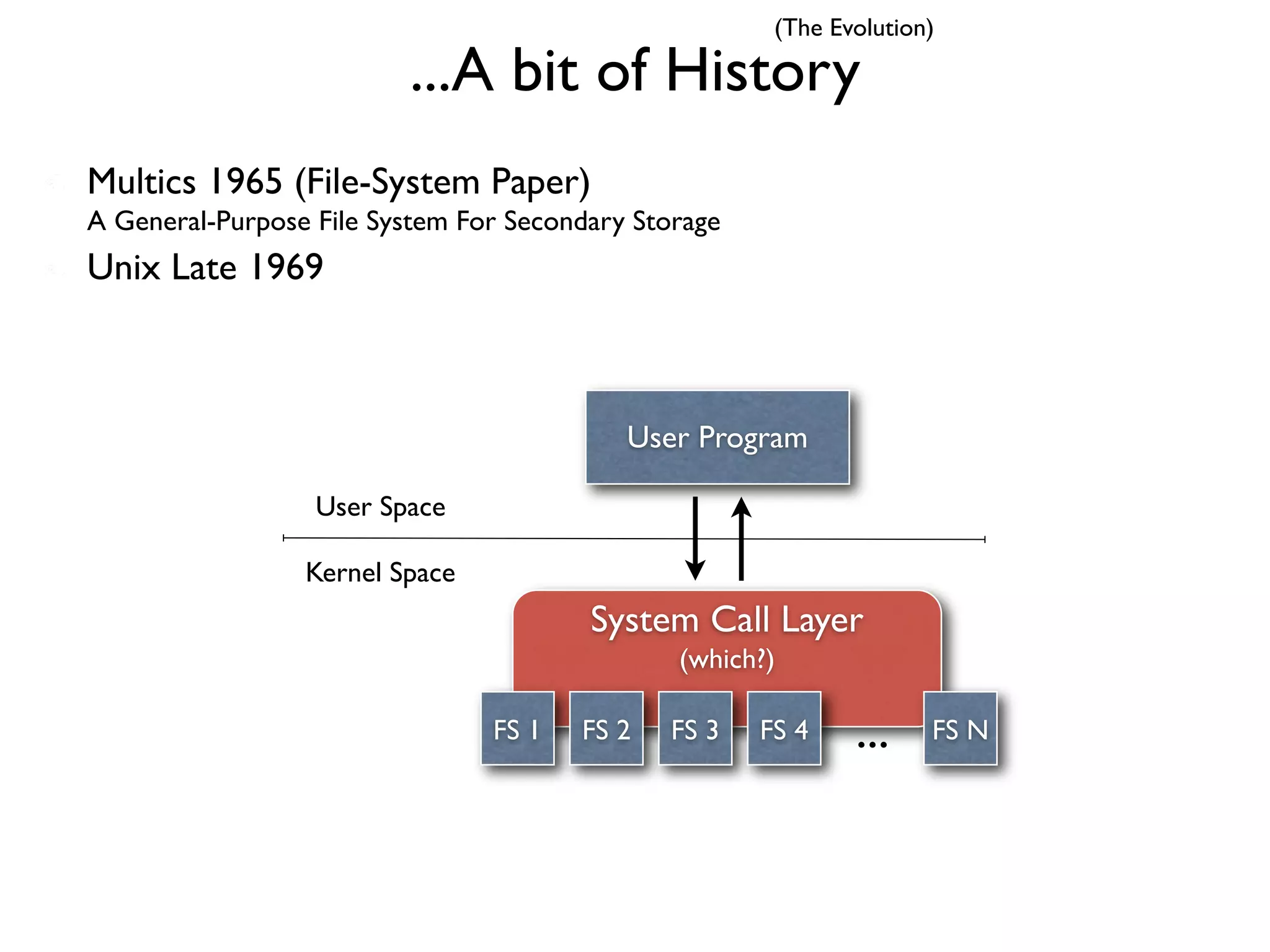
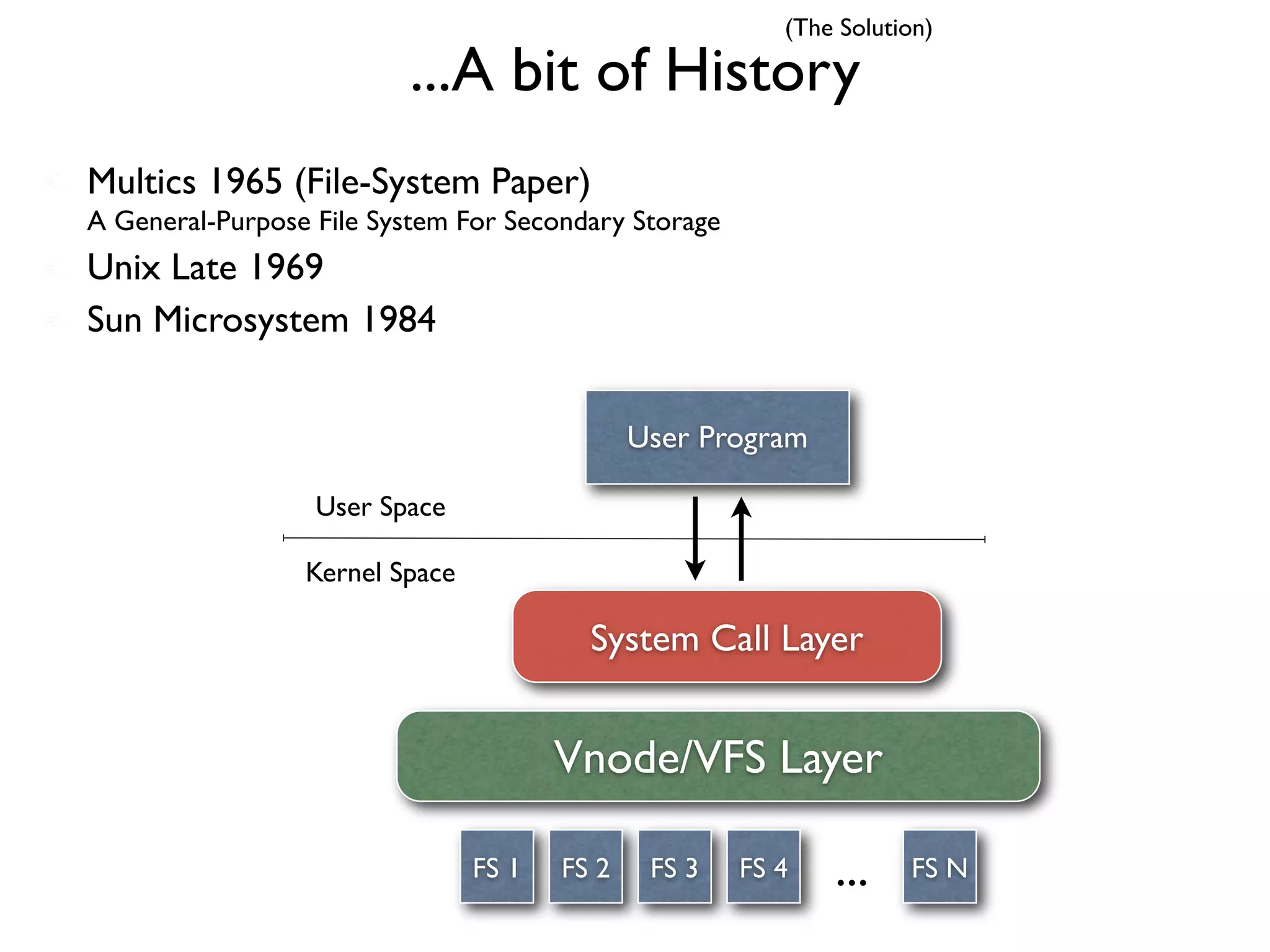
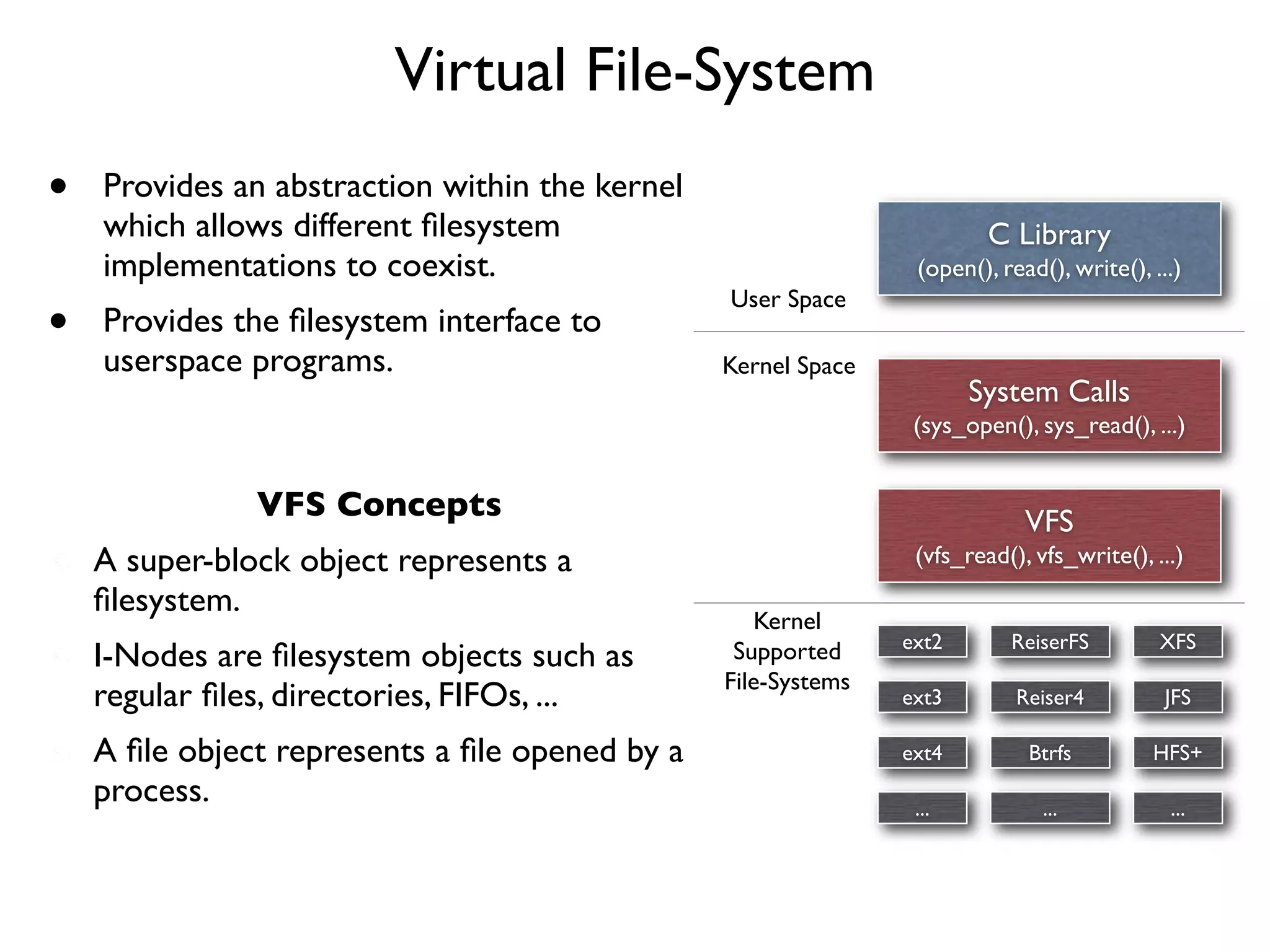
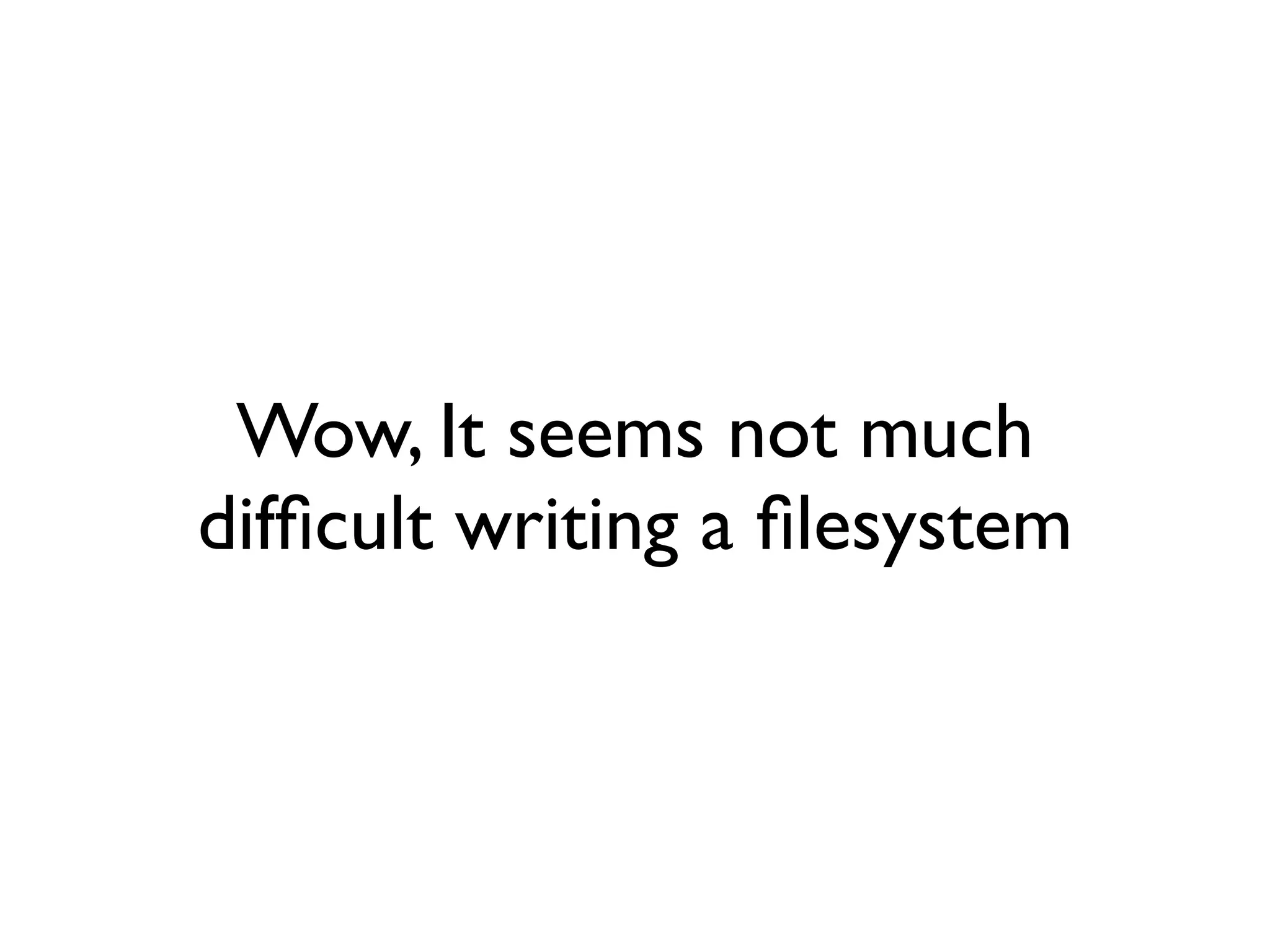
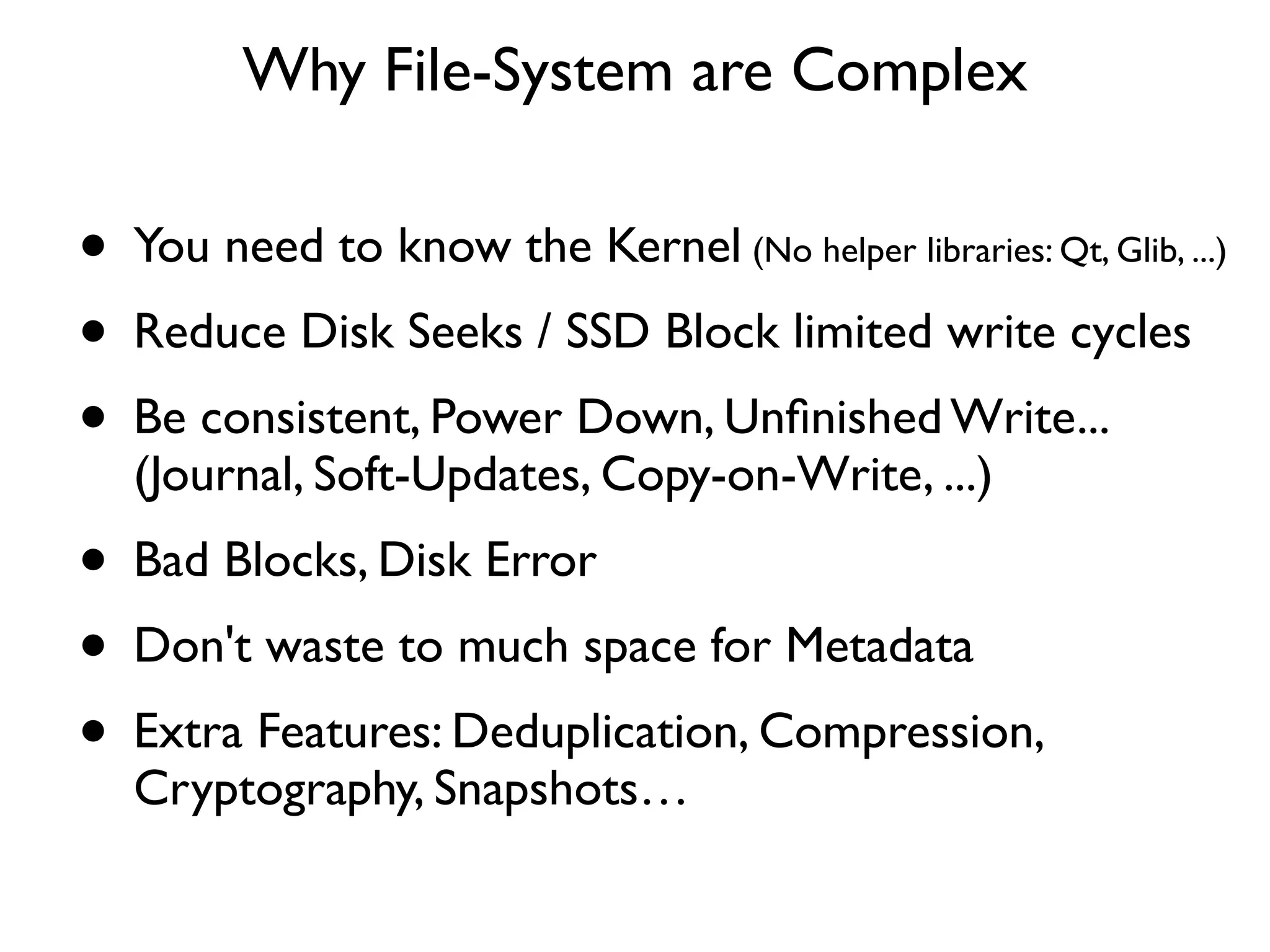
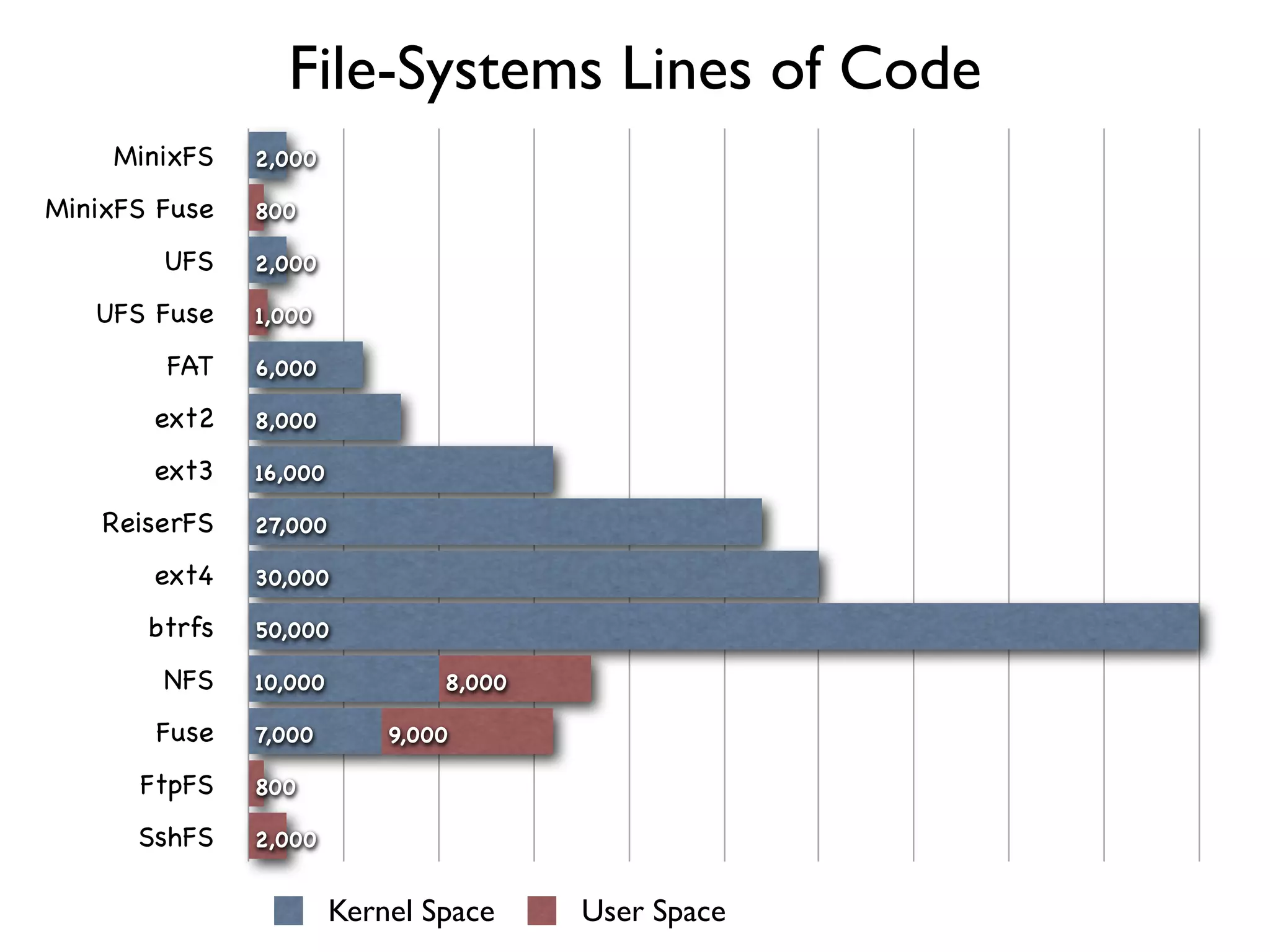
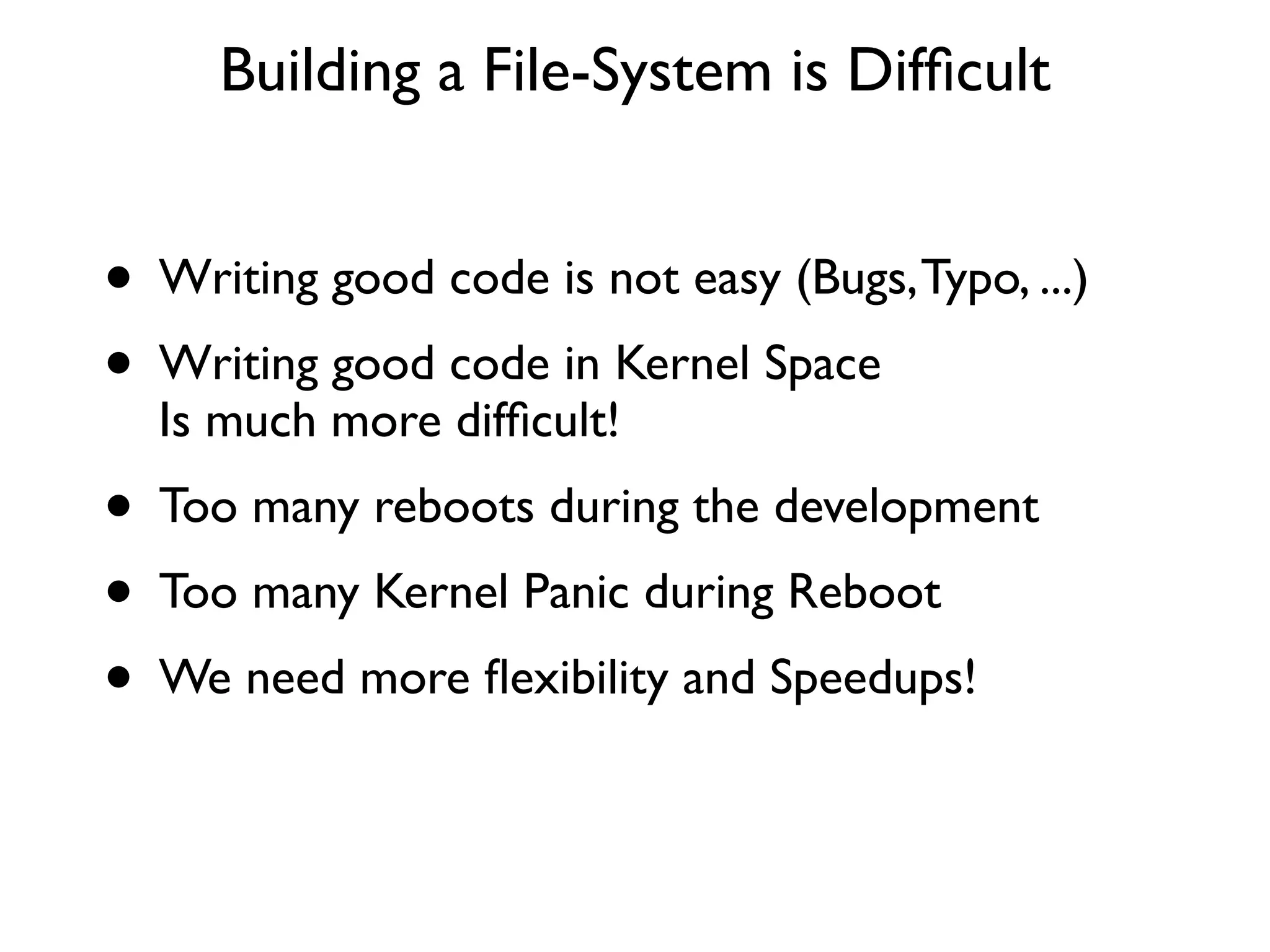
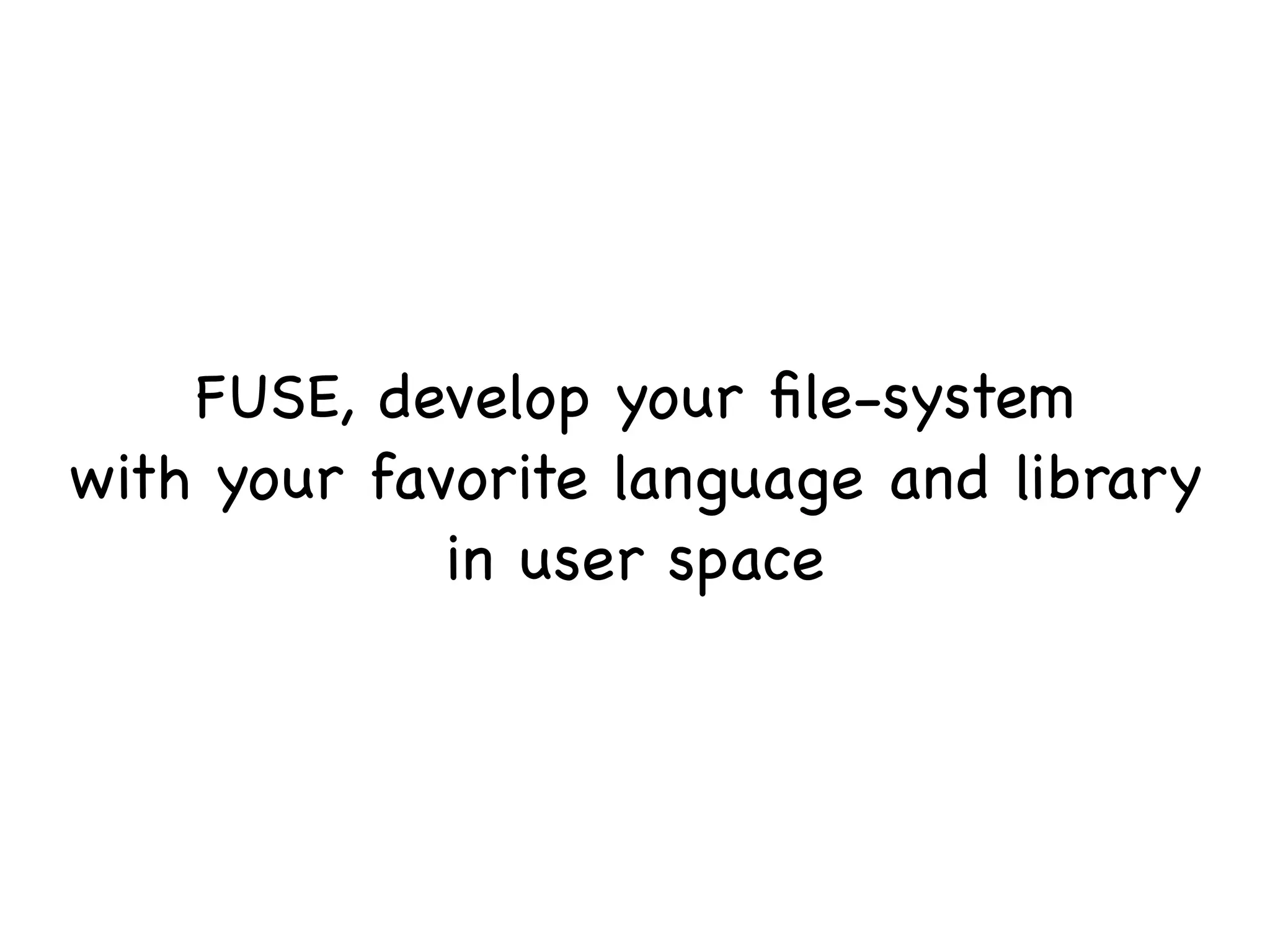
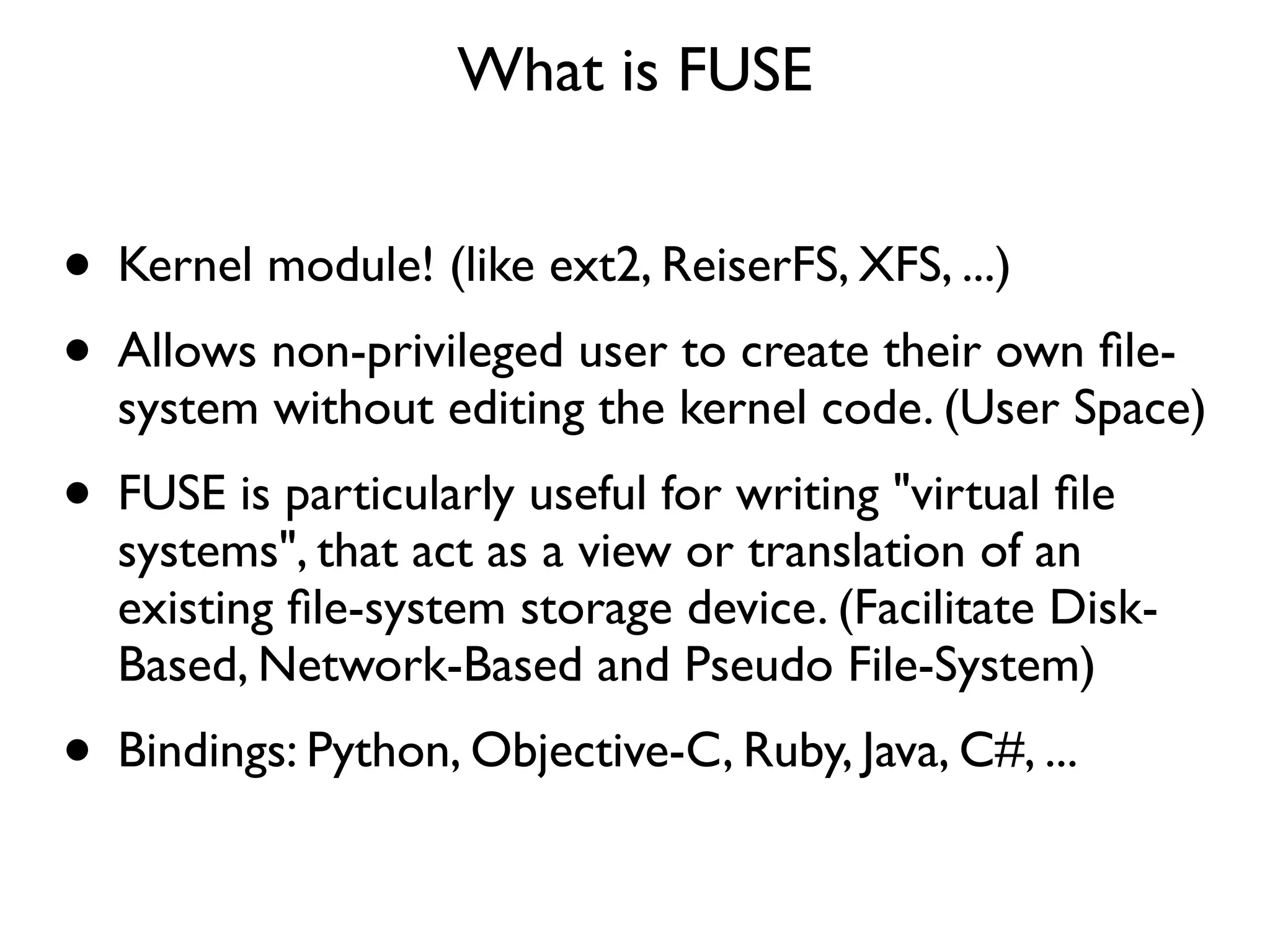
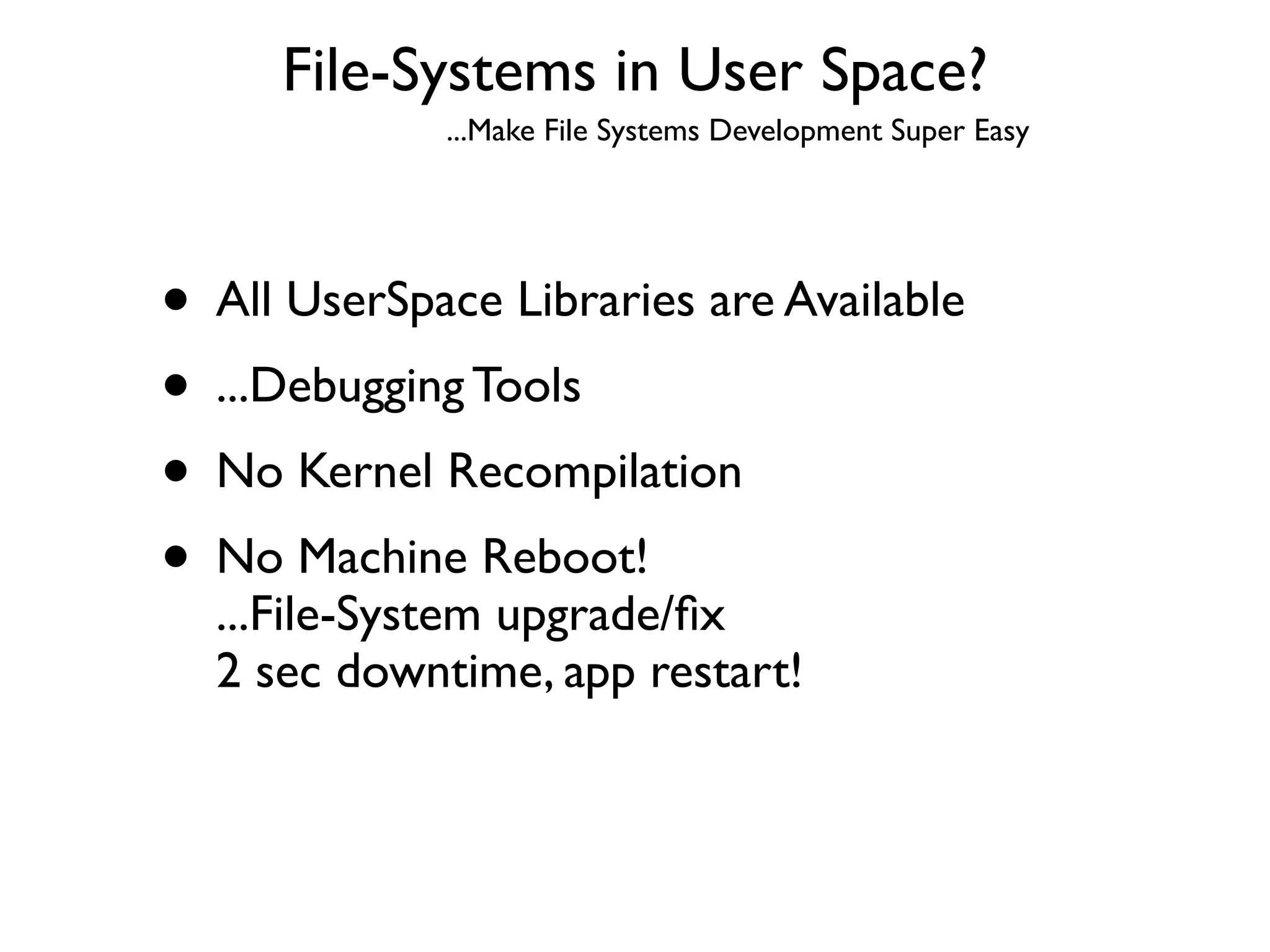
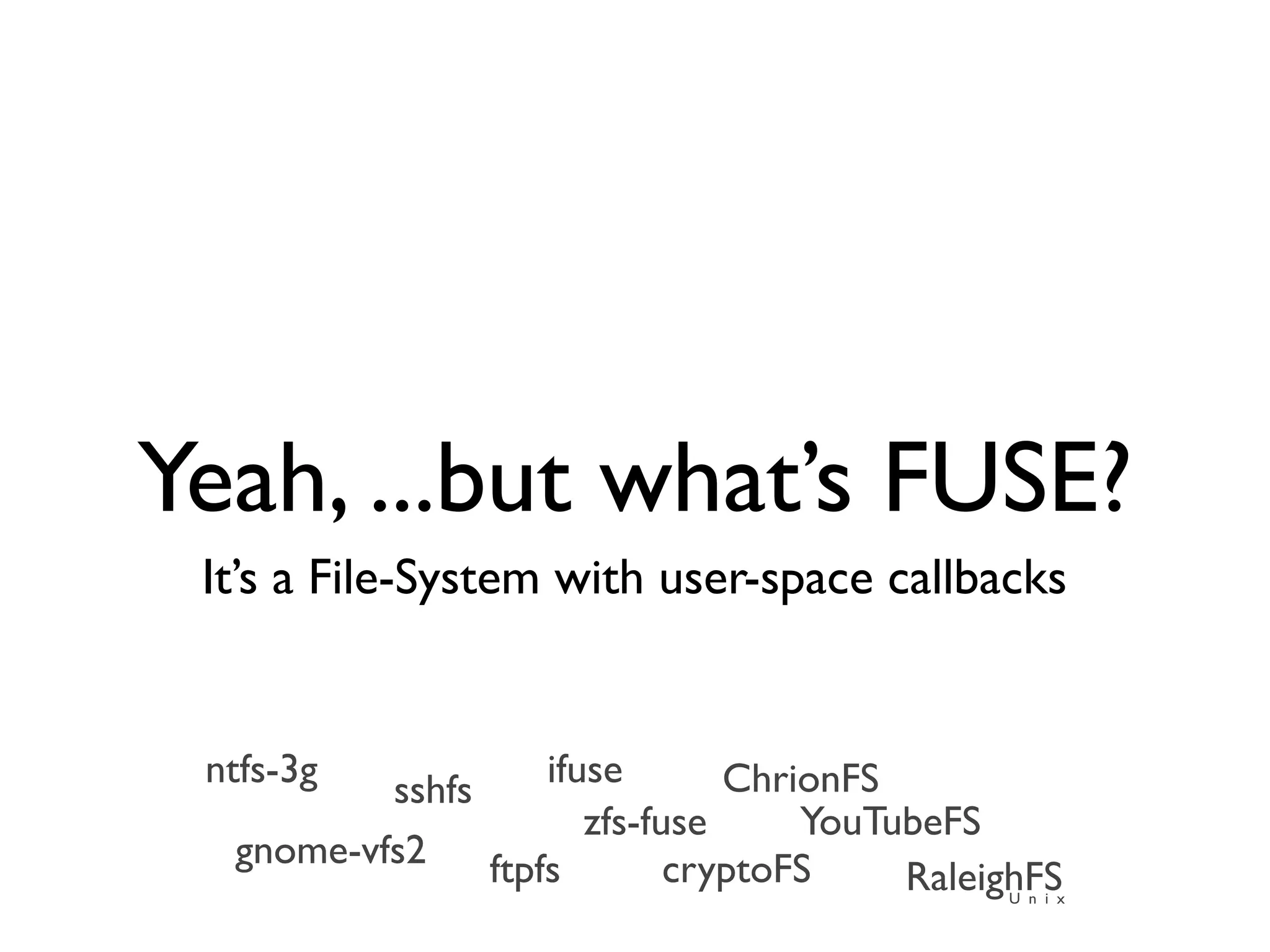
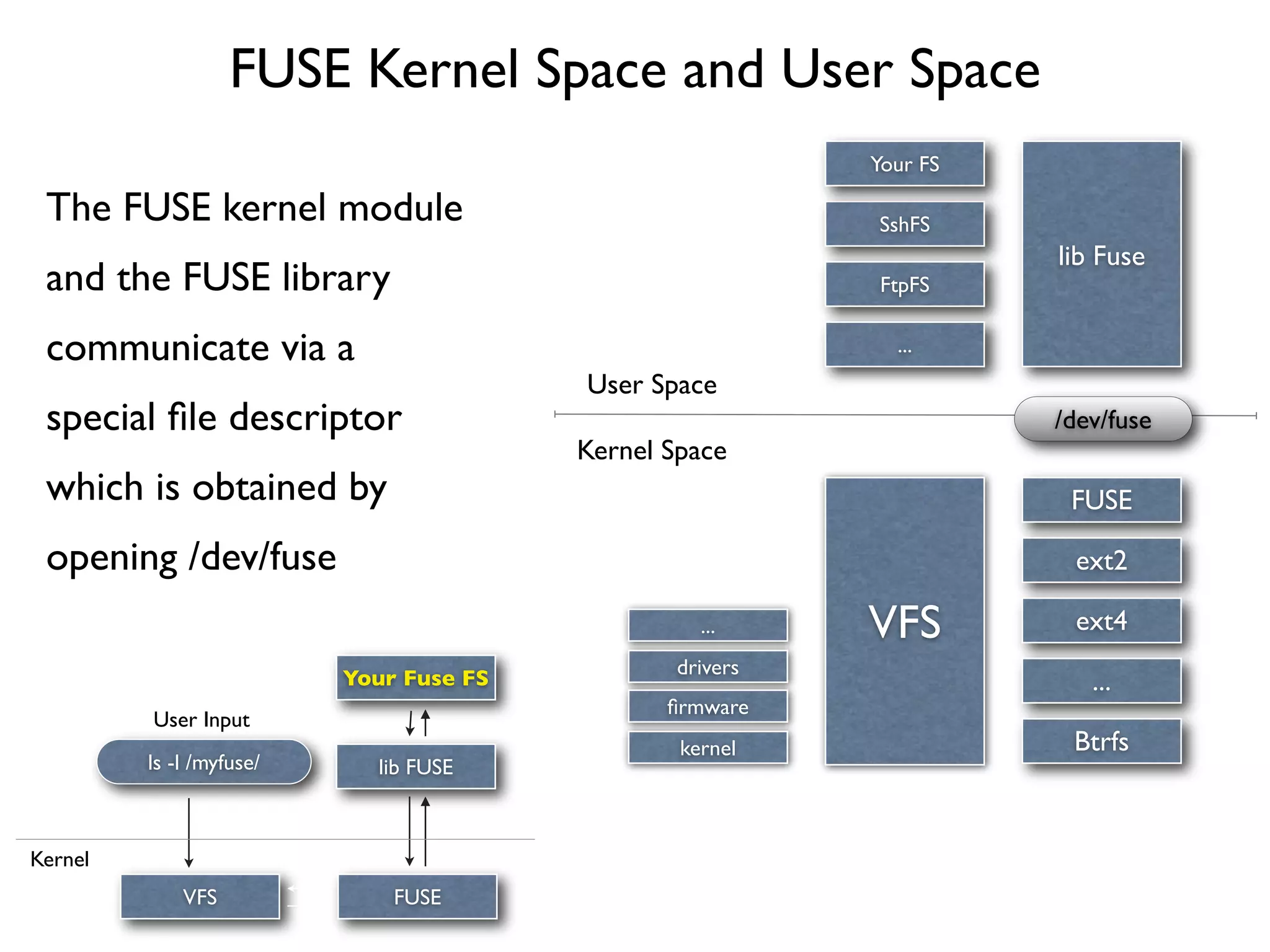
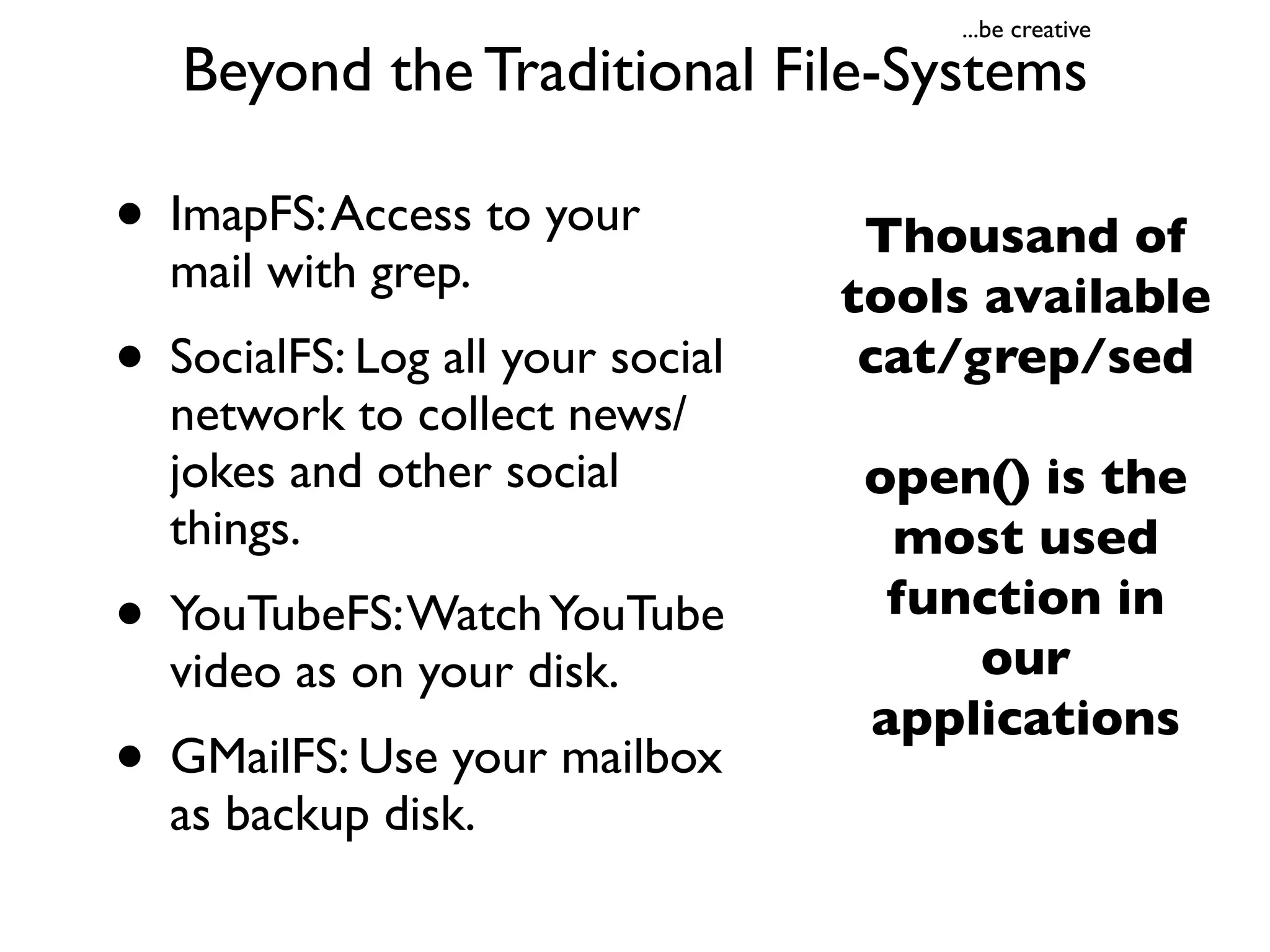
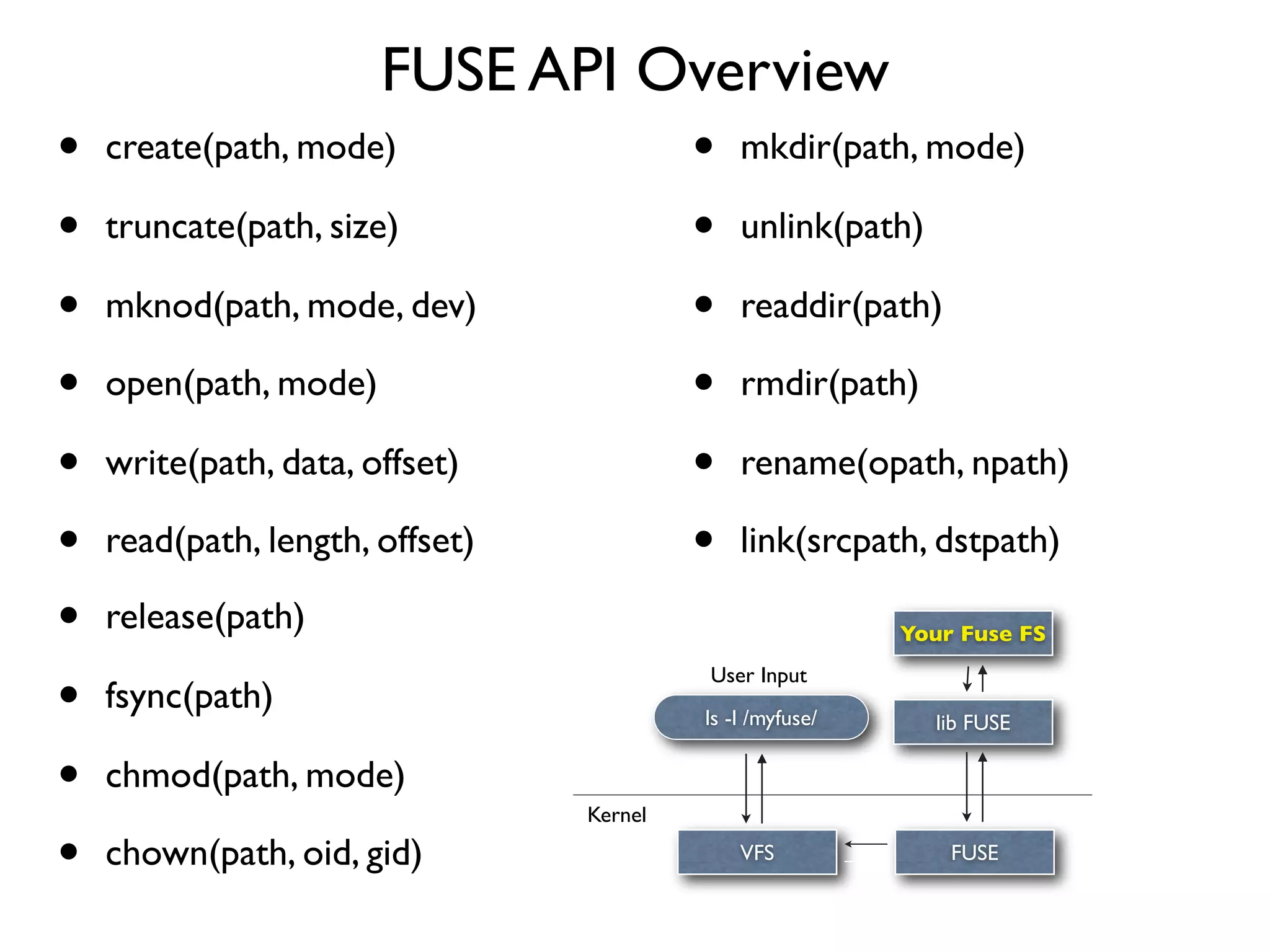
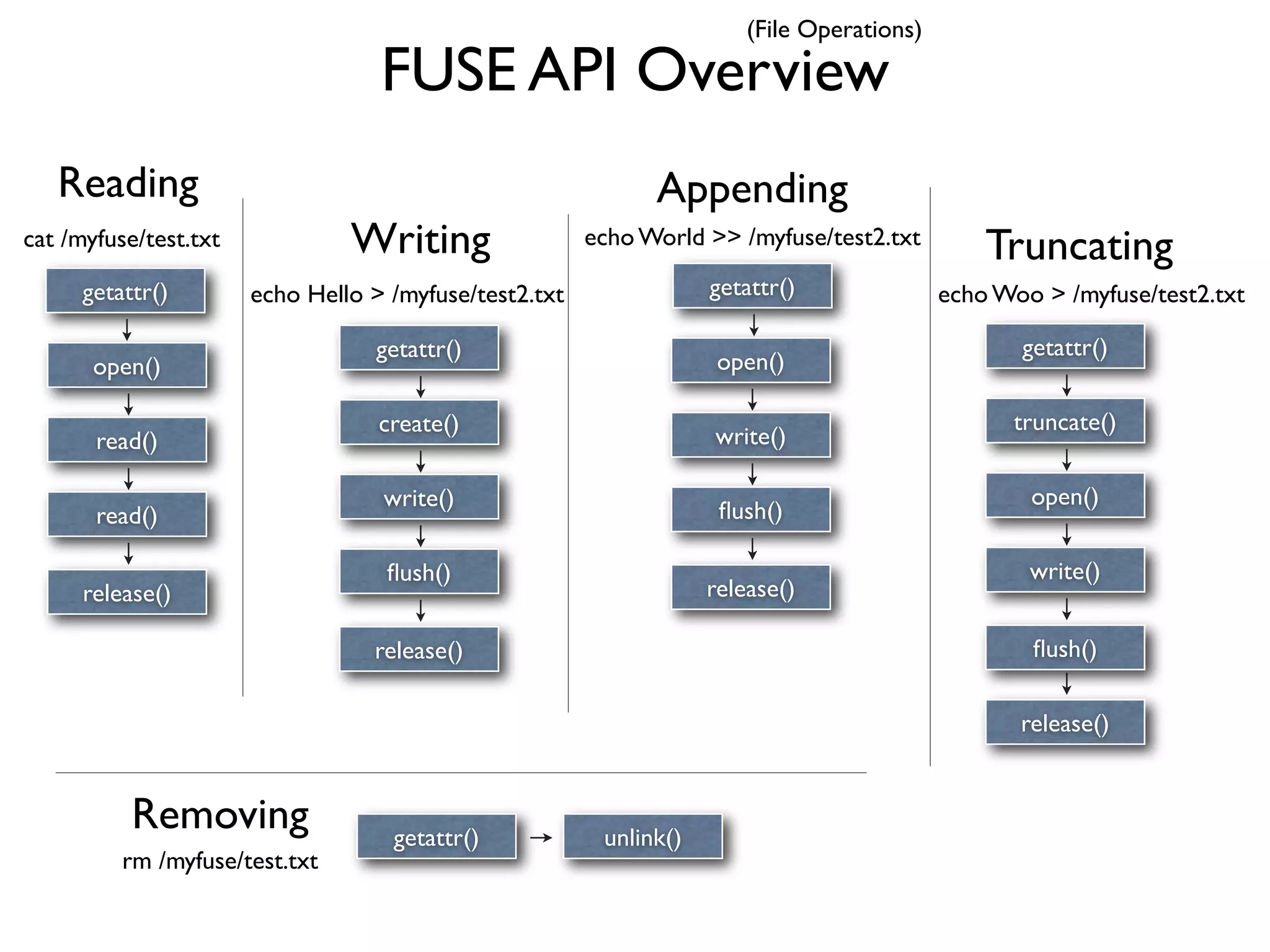
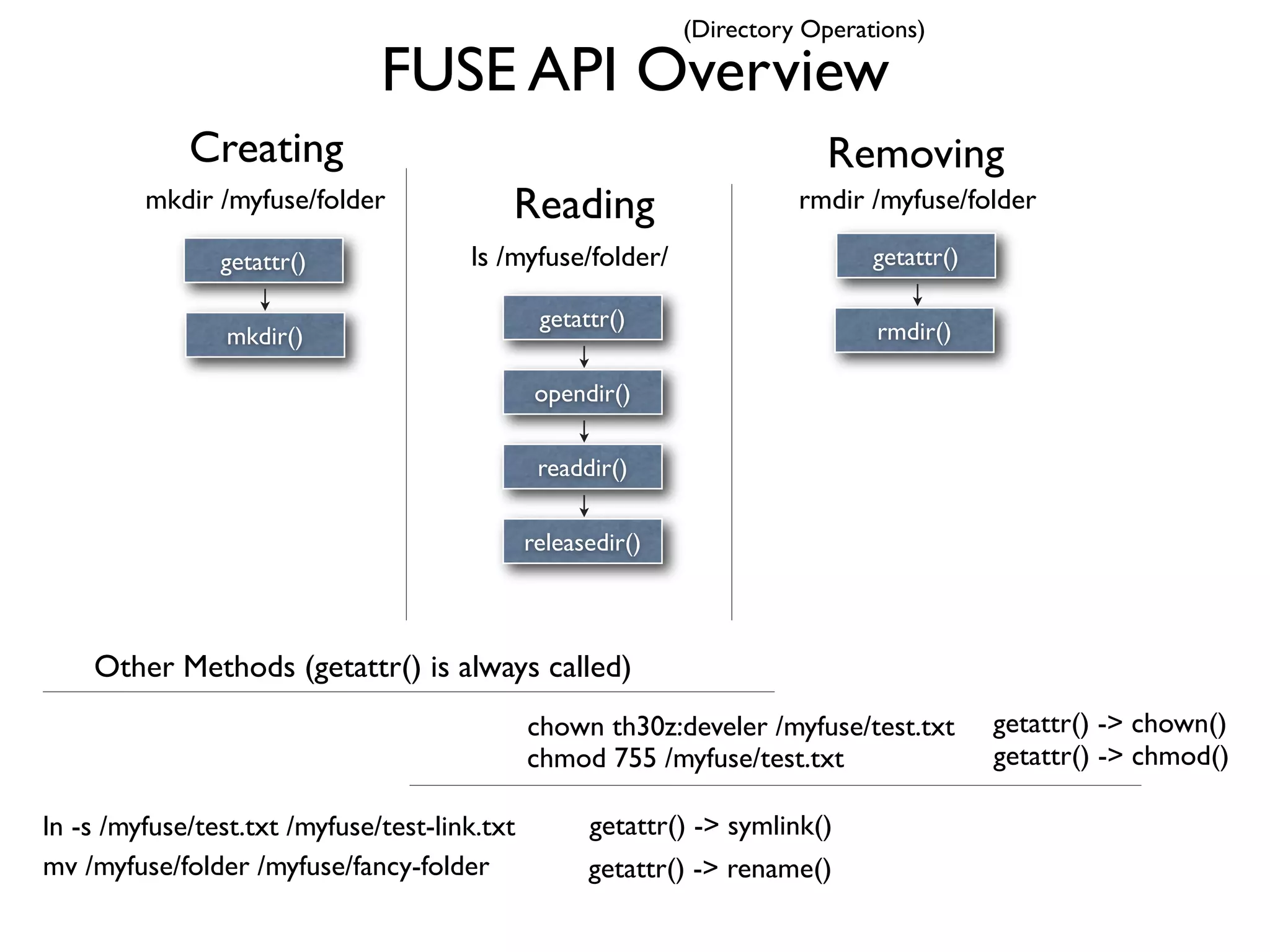
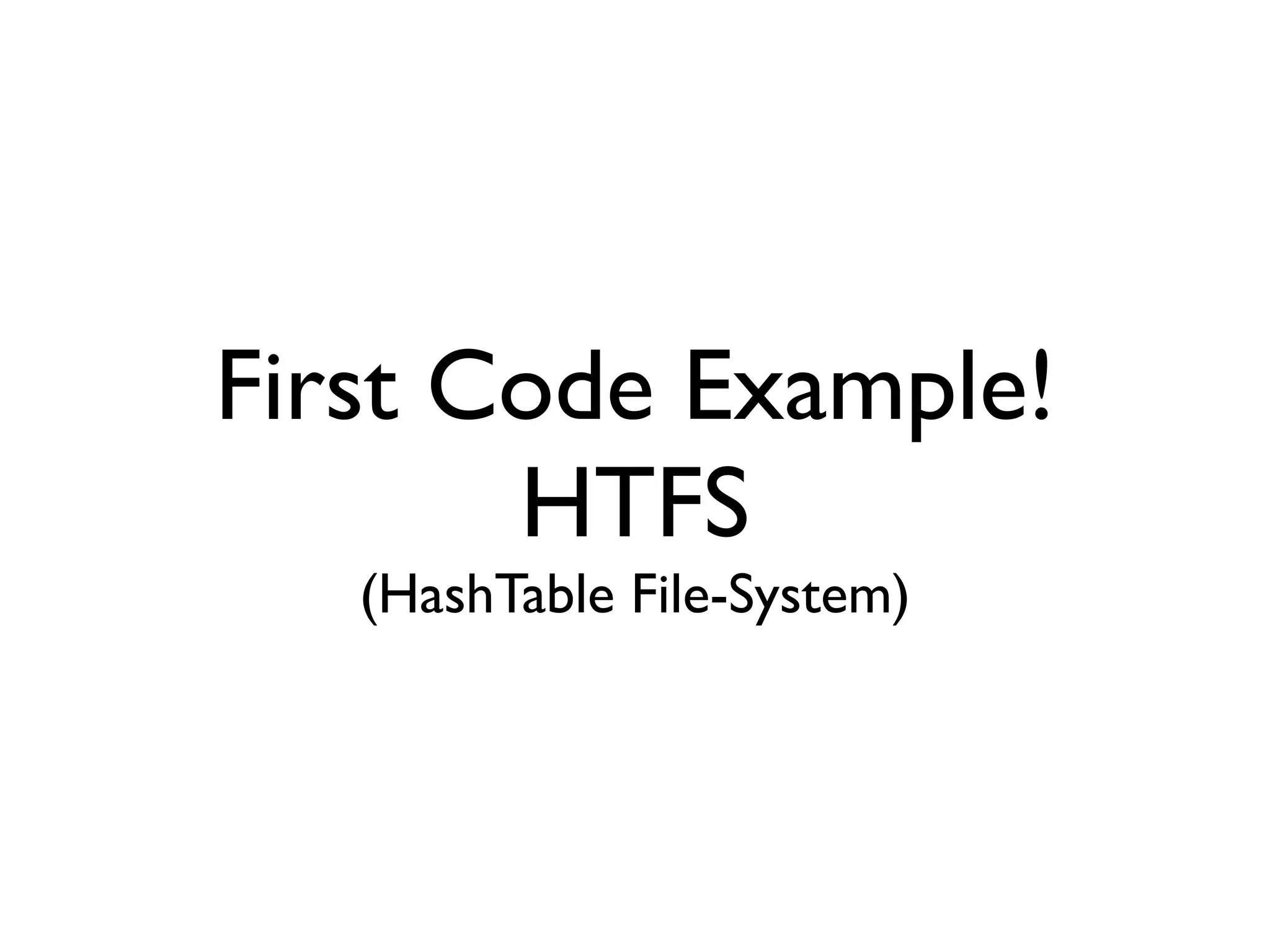
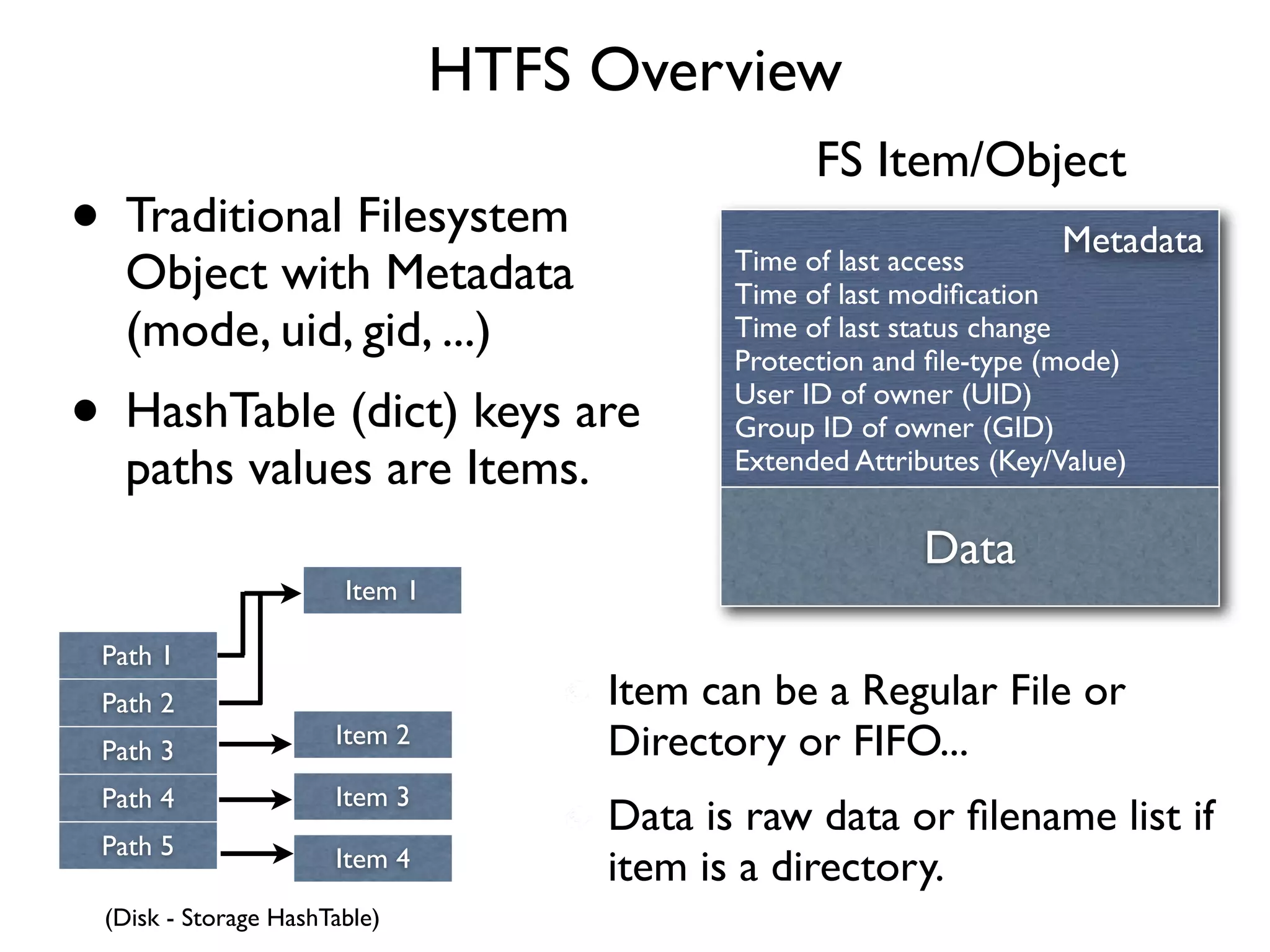
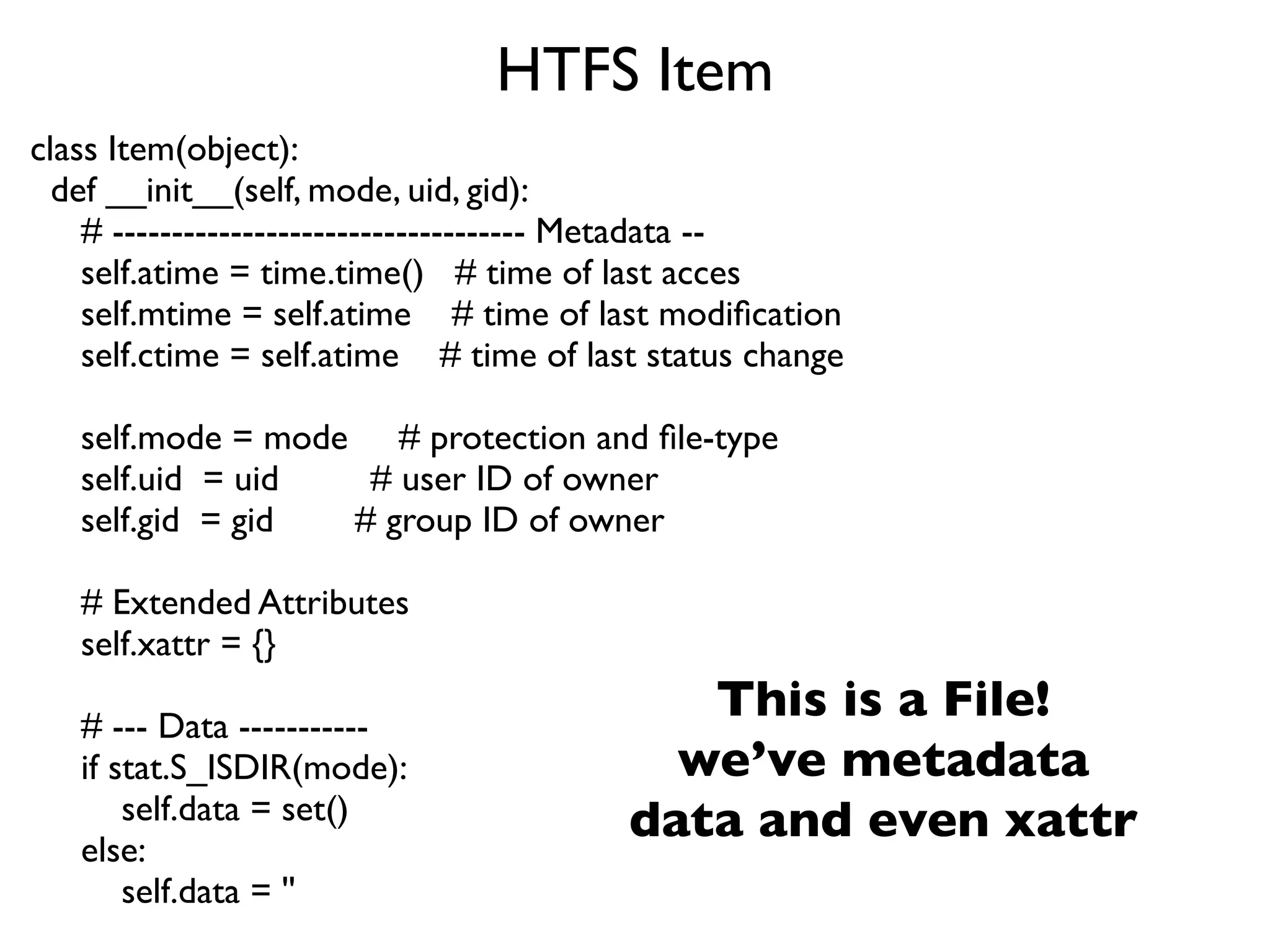
![(Data Helper)
HTFS Item
def read(self, offset, length):
return self.data[offset:offset+length]
def write(self, offset, data):
length = len(data)
self.data = self.data[:offset] + data + self.data[offset+length:]
return length
def truncate(self, length):
if len(self.data) > length:
self.data = self.data[:length]
else:
self.data += 'x00' * (length - len(self.data)) ...a couple
of utility methods
to read/write
and interact with
data.](https://image.slidesharecdn.com/pythonfusewhite-110319031753-phpapp01/75/PythonFuse-PyCon4-26-2048.jpg)
![HTFS Fuse Operations
class HTFS(fuse.Fuse): getattr() is called
def __init__(self, *args, **kwargs):
before any operation.
fuse.Fuse.__init__(self, *args, **kwargs)
Tells to the VFS if you
self.uid = os.getuid() can access to the
self.gid = os.getgid() specified file and the
“State”.
root_dir = Item(0755 | stat.S_IFDIR, self.uid, self.gid)
self._storage = {'/': root_dir} def getattr(self, path):
if not path in self._storage:
return -errno.ENOENT
File-System must be initialized
with the / directory # Lookup Item and fill the stat struct
item = self._storage[path]
st = zstat(fuse.Stat())
def main(): st.st_mode = item.mode
server = HTFS() st.st_uid = item.uid
st.st_gid = item.gid
server.main() st.st_atime = item.atime
st.st_mtime = item.mtime
Your FUSE File-System st.st_ctime = item.ctime
is like a Server... st.st_size = len(item.data)
return st](https://image.slidesharecdn.com/pythonfusewhite-110319031753-phpapp01/75/PythonFuse-PyCon4-27-2048.jpg)
![(File Operations)
HTFS Fuse Operations
def create(self, path, flags, mode):
self._storage[path] = Item(mode | stat.S_IFREG, self.uid, self.gid)
self._add_to_parent_dir(path)
def truncate(self, path, len):
self._storage[path].truncate(len)
def read(self, path, size, offset):
return self._storage[path].read(offset, size) def unlink(self, path):
self._remove_from_parent_dir(path)
def write(self, path, buf, offset): del self._storage[path]
return self._storage[path].write(offset, buf)
def rename(self, oldpath, newpath):
Disk is just a big item = self._storage.pop(oldpath)
dictionary... self._storage[newpath] = item
...and files are items
key = name
value = data](https://image.slidesharecdn.com/pythonfusewhite-110319031753-phpapp01/75/PythonFuse-PyCon4-28-2048.jpg)
![(Directory Operations)
HTFS Fuse Operations
def mkdir(self, path, mode):
self._storage[path] = Item(mode | stat.S_IFDIR, self.uid, self.gid)
self._add_to_parent_dir(path)
def rmdir(self, path):
self._remove_from_parent_dir(path)
del self._storage[path] Directory is a File
that contains
def readdir(self, path, offset): File names
dir_items = self._storage[path].data
for item in dir_items: as data!
yield fuse.Direntry(item)
def _add_to_parent_dir(self, path):
parent_path = os.path.dirname(path)
filename = os.path.basename(path)
self._storage[parent_path].data.add(filename)](https://image.slidesharecdn.com/pythonfusewhite-110319031753-phpapp01/75/PythonFuse-PyCon4-29-2048.jpg)
![(XAttr Operations)
HTFS Fuse Operations
def setxattr(self, path, name, value, flags):
self._storage[path].xattr[name] = value
def getxattr(self, path, name, size):
value = self._storage[path].xattr.get(name, '')
if size == 0: # We are asked for size of the value
return len(value)
return value Extended attributes
extend the basic attributes
def listxattr(self, path, size): associated with files and
attrs = self._storage[path].xattr.keys()
directories in the file
if size == 0:
return len(attrs) + len(''.join(attrs)) system. They are stored
return attrs as name:data pairs
associated with file system
def removexattr(self, path, name): objects
if name in self._storage[path].xattr:
del self._storage[path].xattr[name]](https://image.slidesharecdn.com/pythonfusewhite-110319031753-phpapp01/75/PythonFuse-PyCon4-30-2048.jpg)
![(Other Operations)
HTFS Fuse Operations
Lookup Item, def chmod(self, path, mode):
item = self._storage[path]
Access to its item.mode = mode
information/data return or
write it. def chown(self, path, uid, gid):
item = self._storage[path]
This is the item.uid = uid
File-System’s Job item.gid = gid
def symlink(self, path, newpath):
item = Item(0644 | stat.S_IFLNK, self.uid, self.gid)
item.data = path
self._storage[newpath] = item
self._add_to_parent_dir(newpath) Symlinks contains just
pointed file path.
def readlink(self, path):
return self._storage[path].data](https://image.slidesharecdn.com/pythonfusewhite-110319031753-phpapp01/75/PythonFuse-PyCon4-31-2048.jpg)
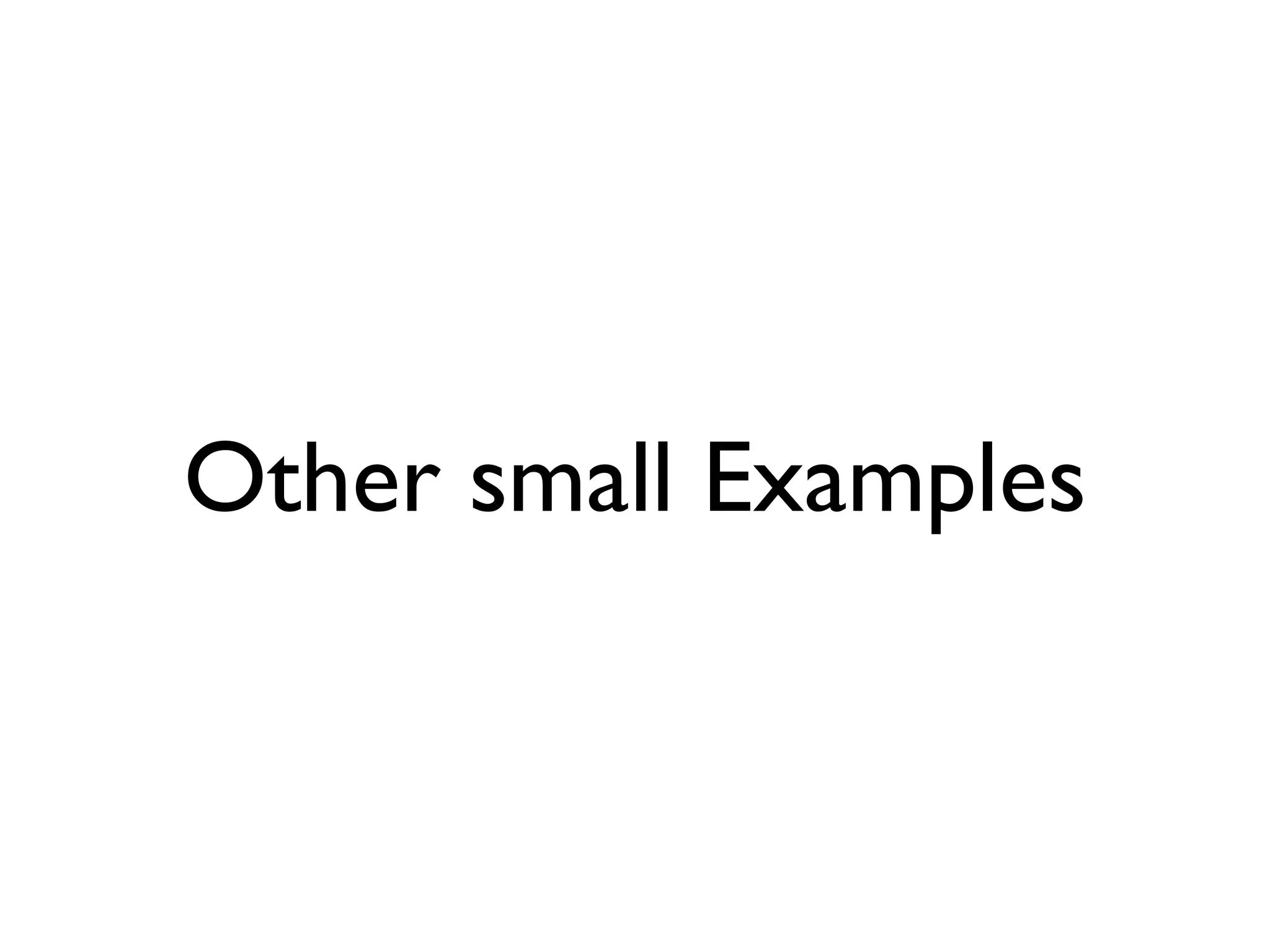
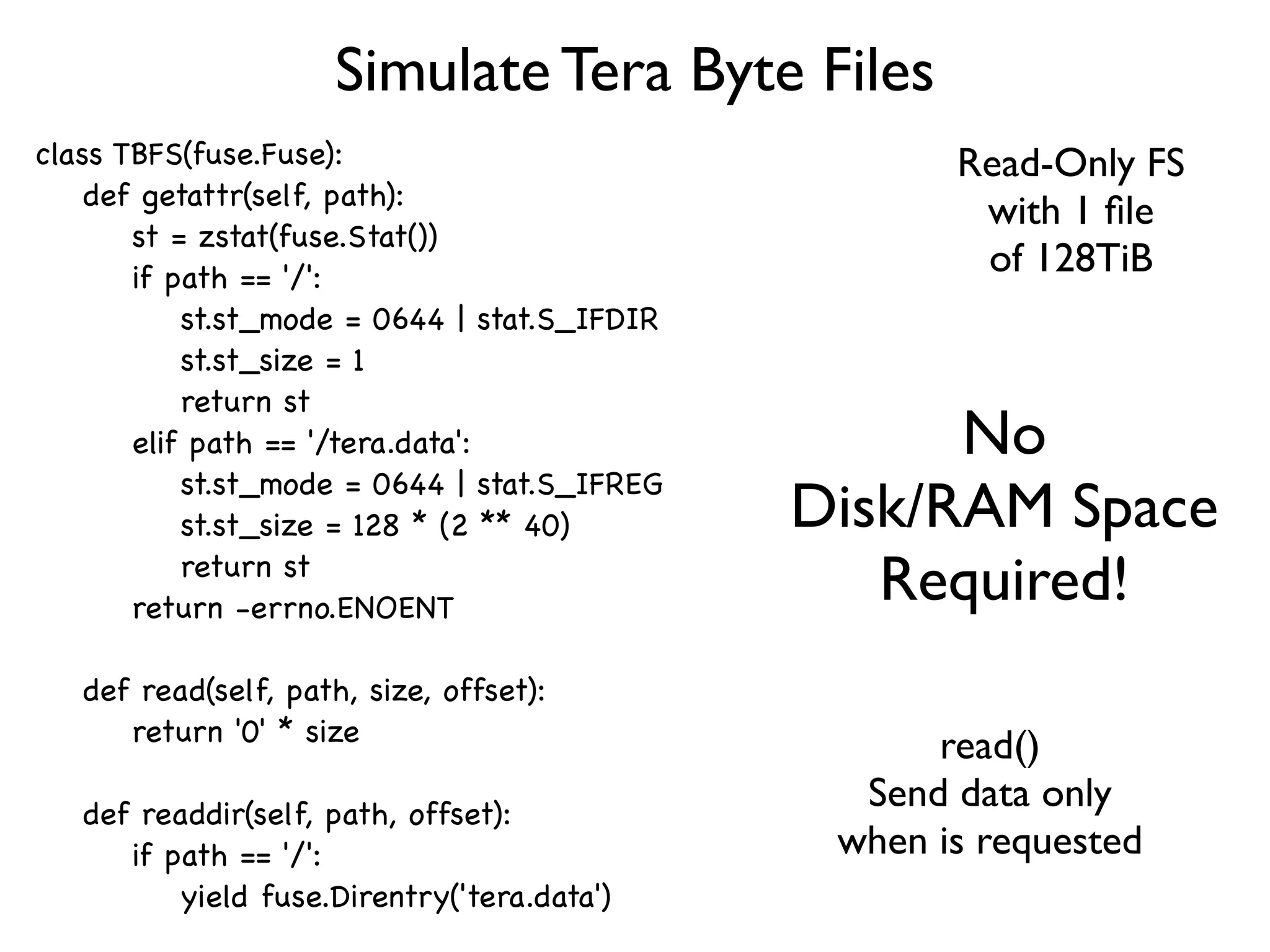
![X^OR File-System
def _xorData(data):
data = [chr(ord(c) ^ 10) for c in data] 10101010 ^
return string.join(data, “”) 01010101 =
class XorFS(fuse.Fuse): ---------
... 11111111 ^
def write(self, path, buf, offset):
data = _xorData(buf) 01010101 =
return _writeData(path, offset, data) ---------
def read(self, path, length, offset): 10101010
data = _readData(path, offset, length)
return _xorData(data)
...
res = _xorData(“xor”)
print res // “rex”
res2 = _xorData(res)
print res // “xor”](https://image.slidesharecdn.com/pythonfusewhite-110319031753-phpapp01/75/PythonFuse-PyCon4-34-2048.jpg)
